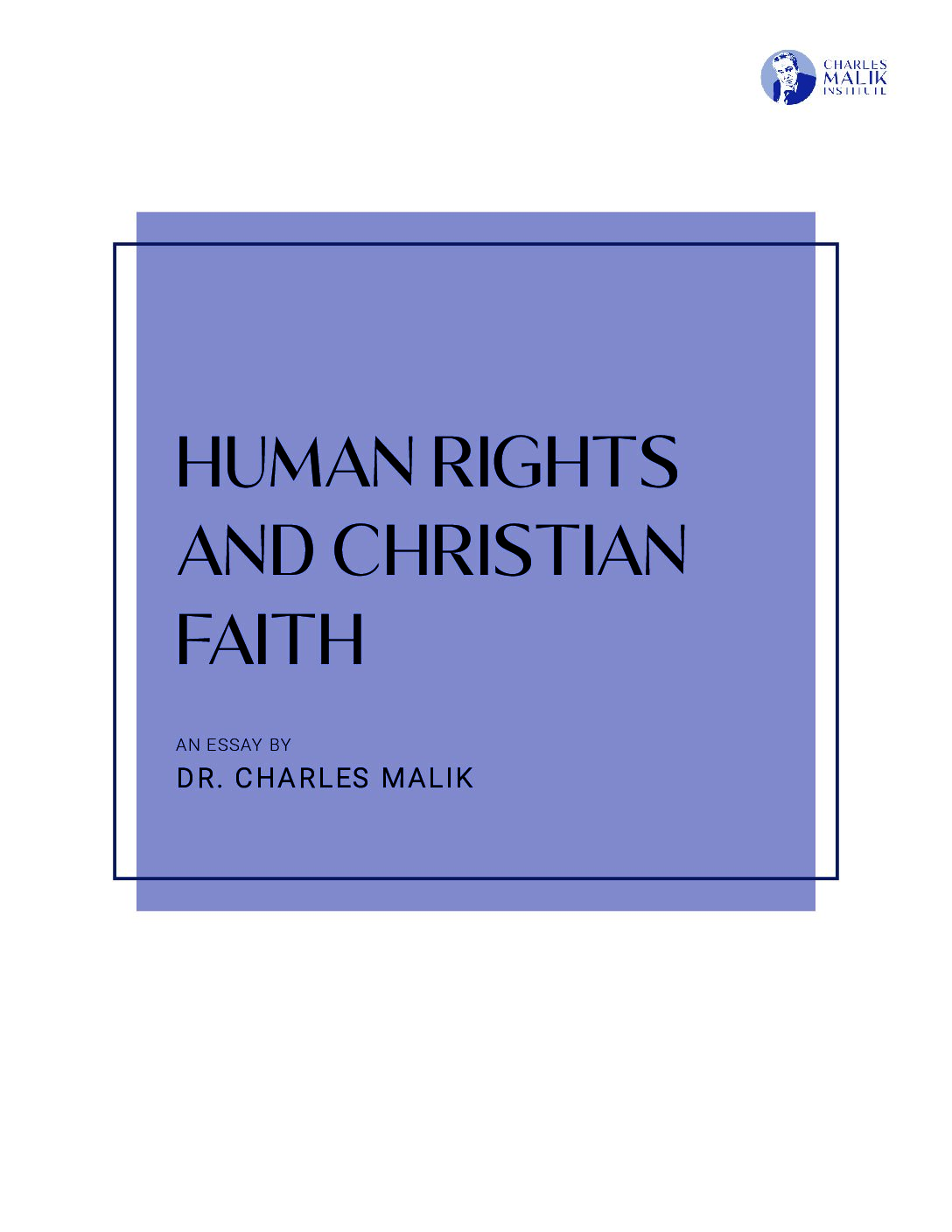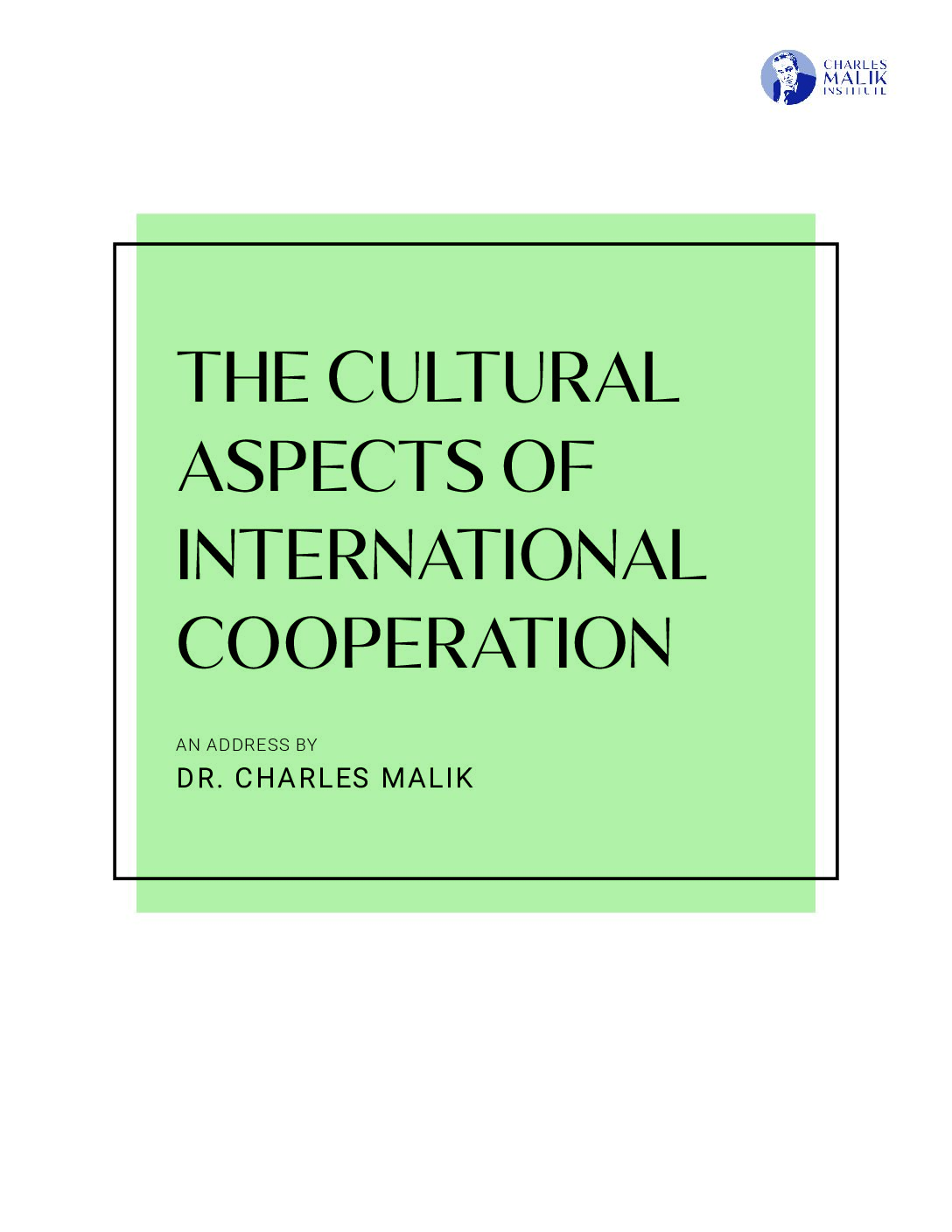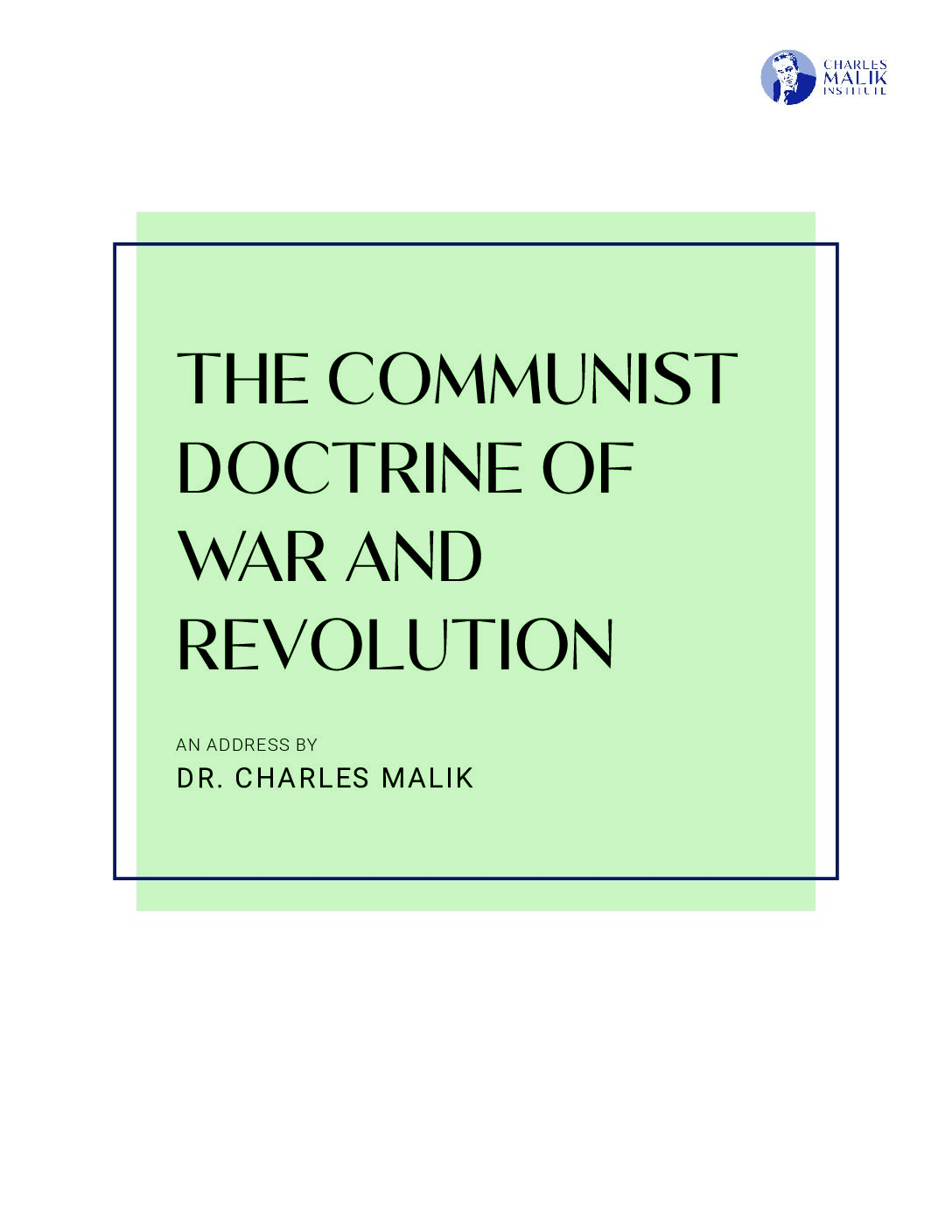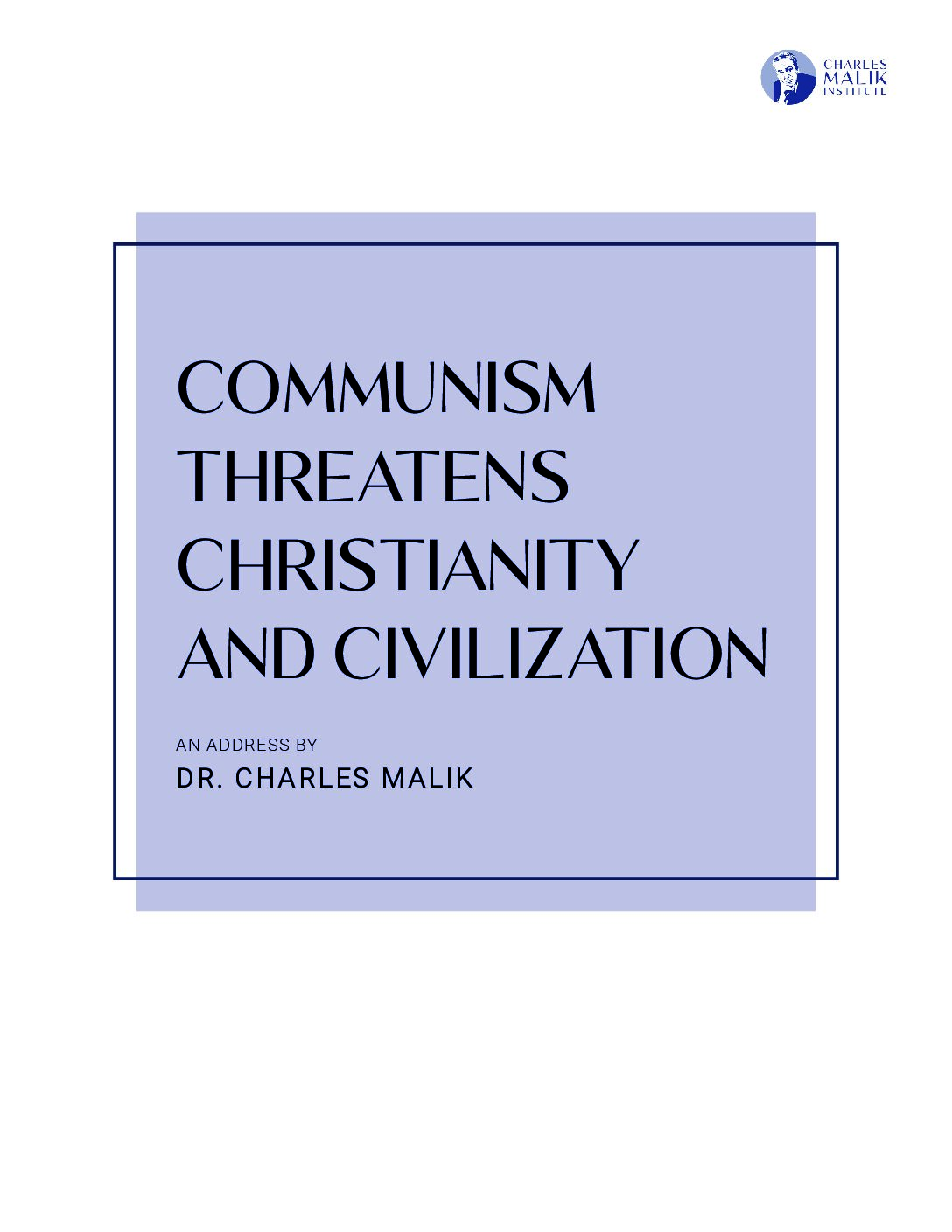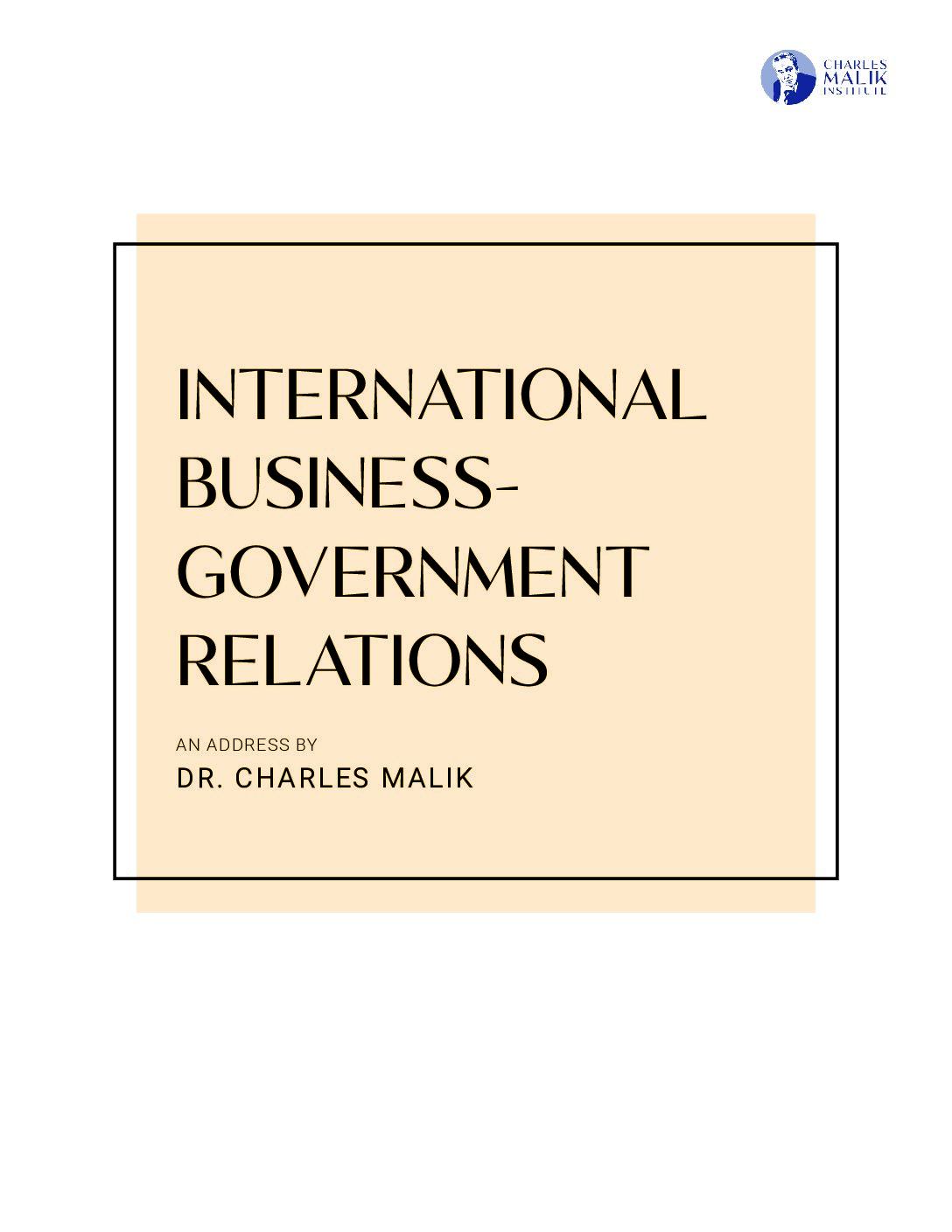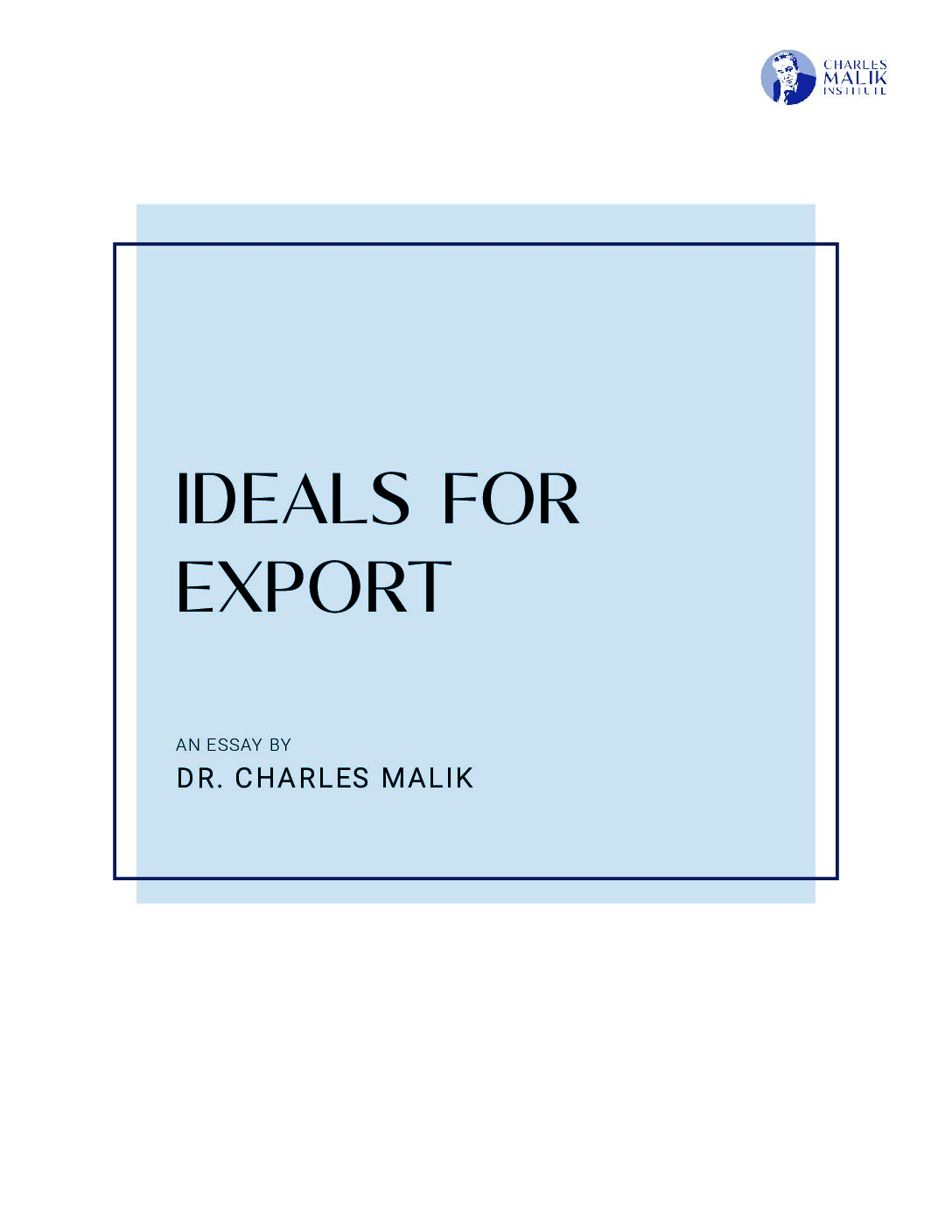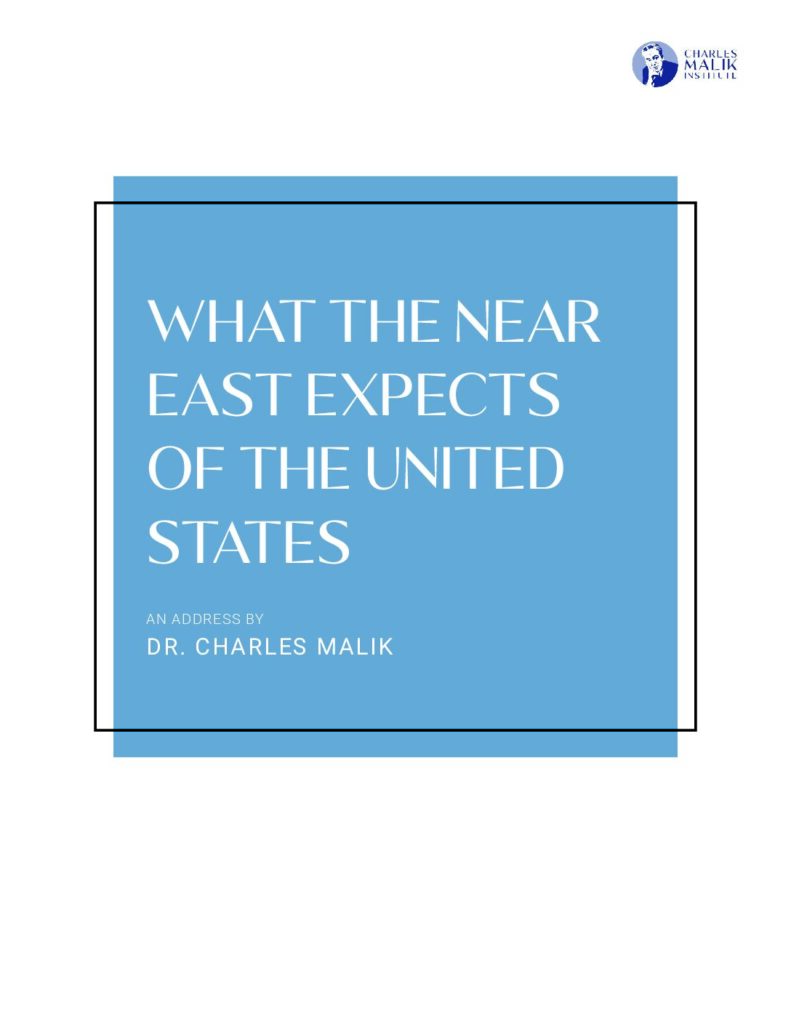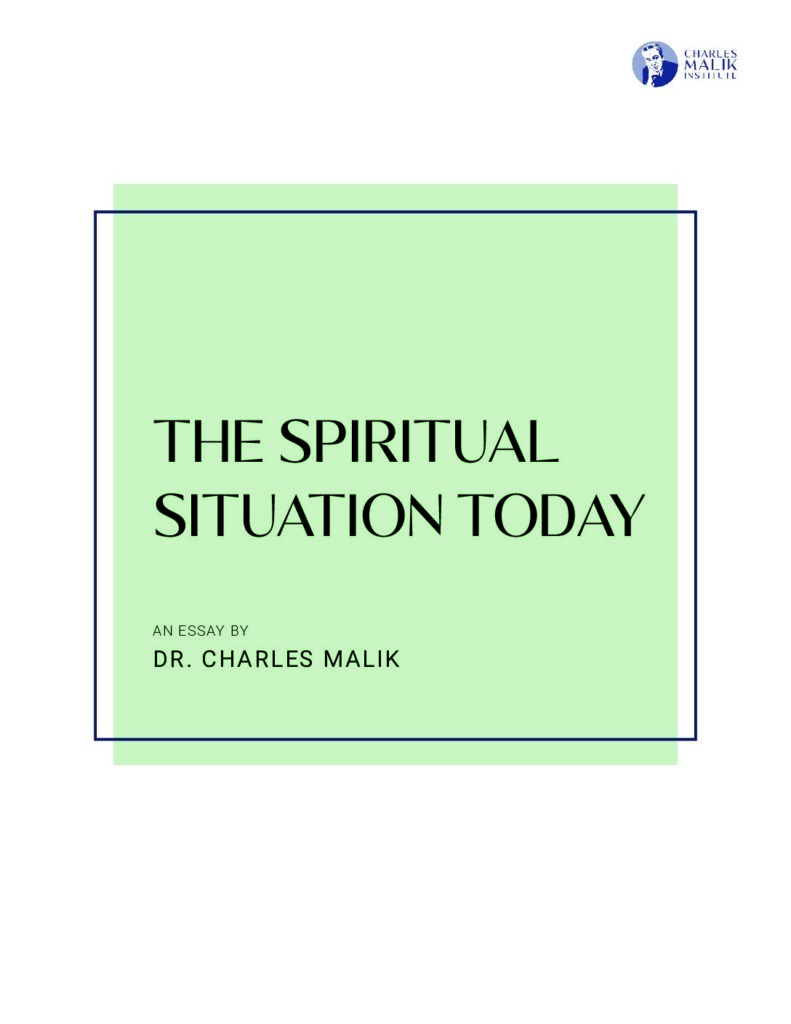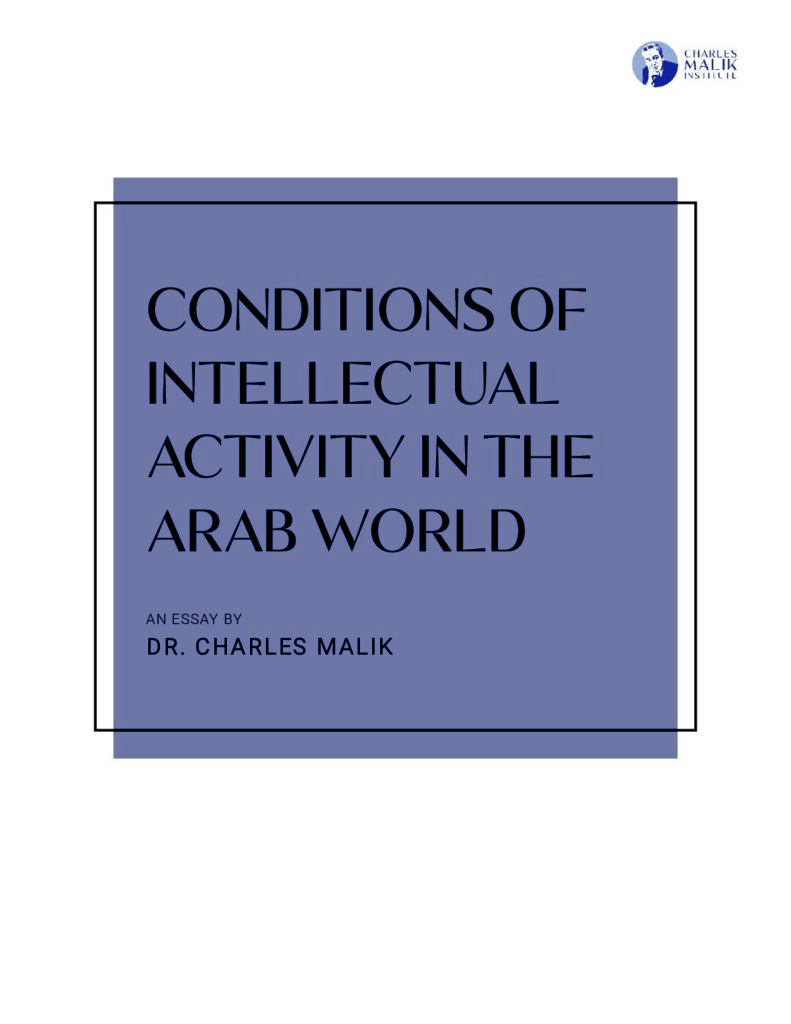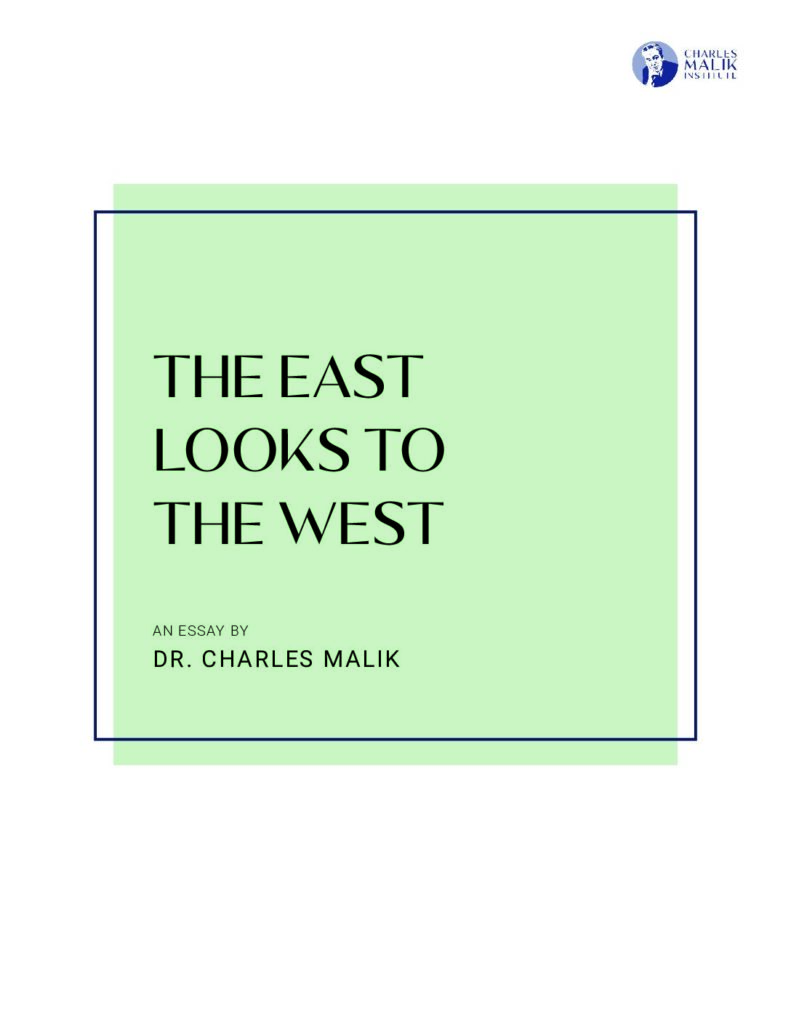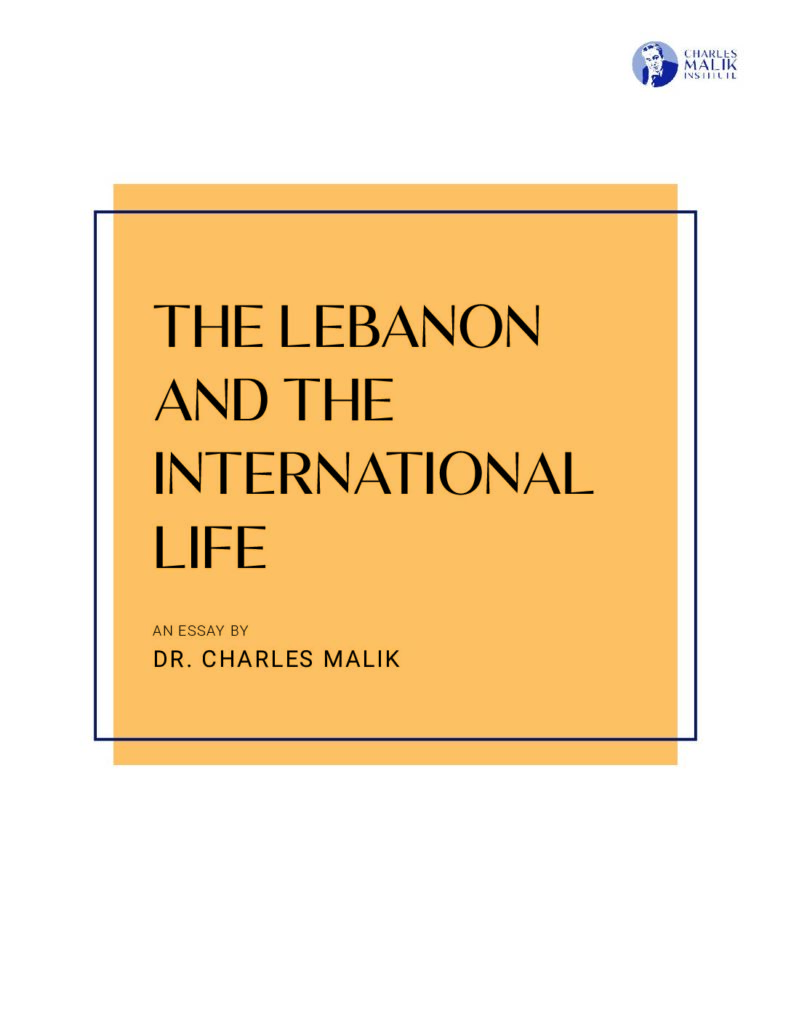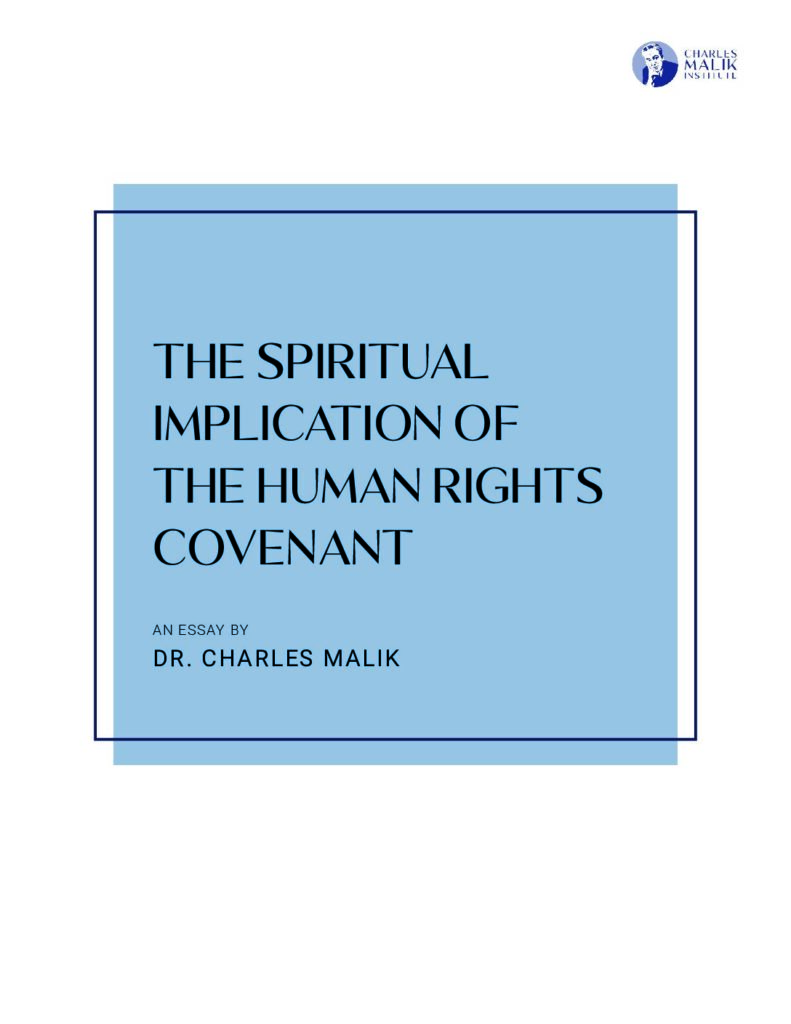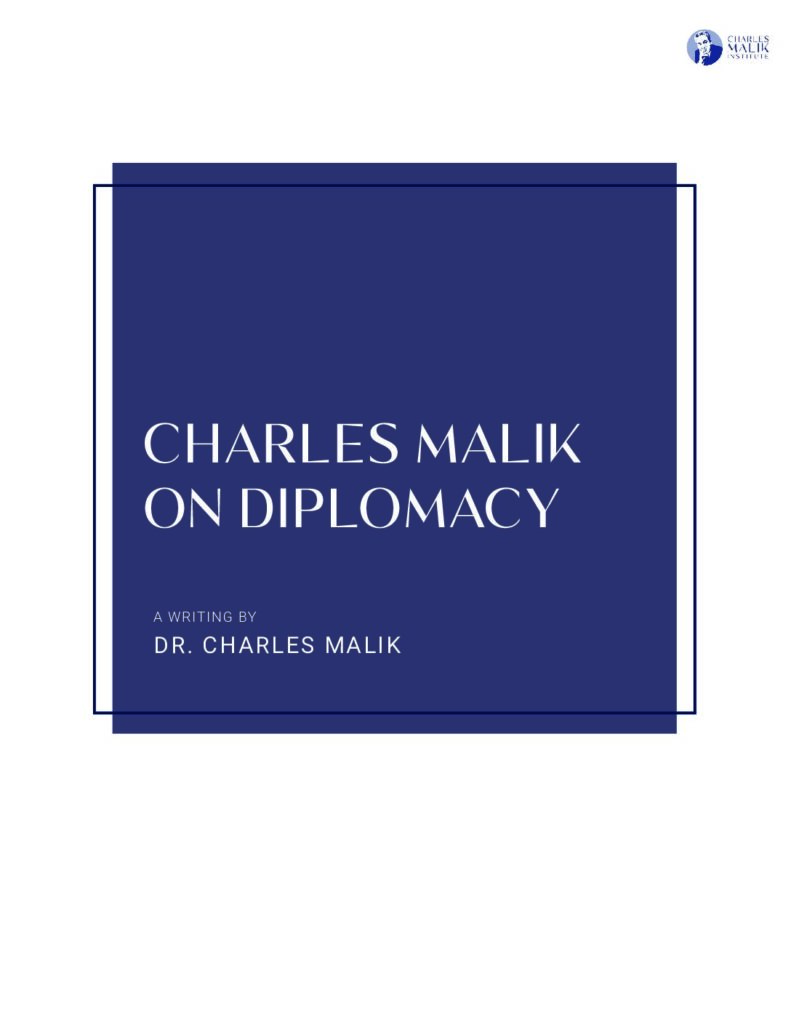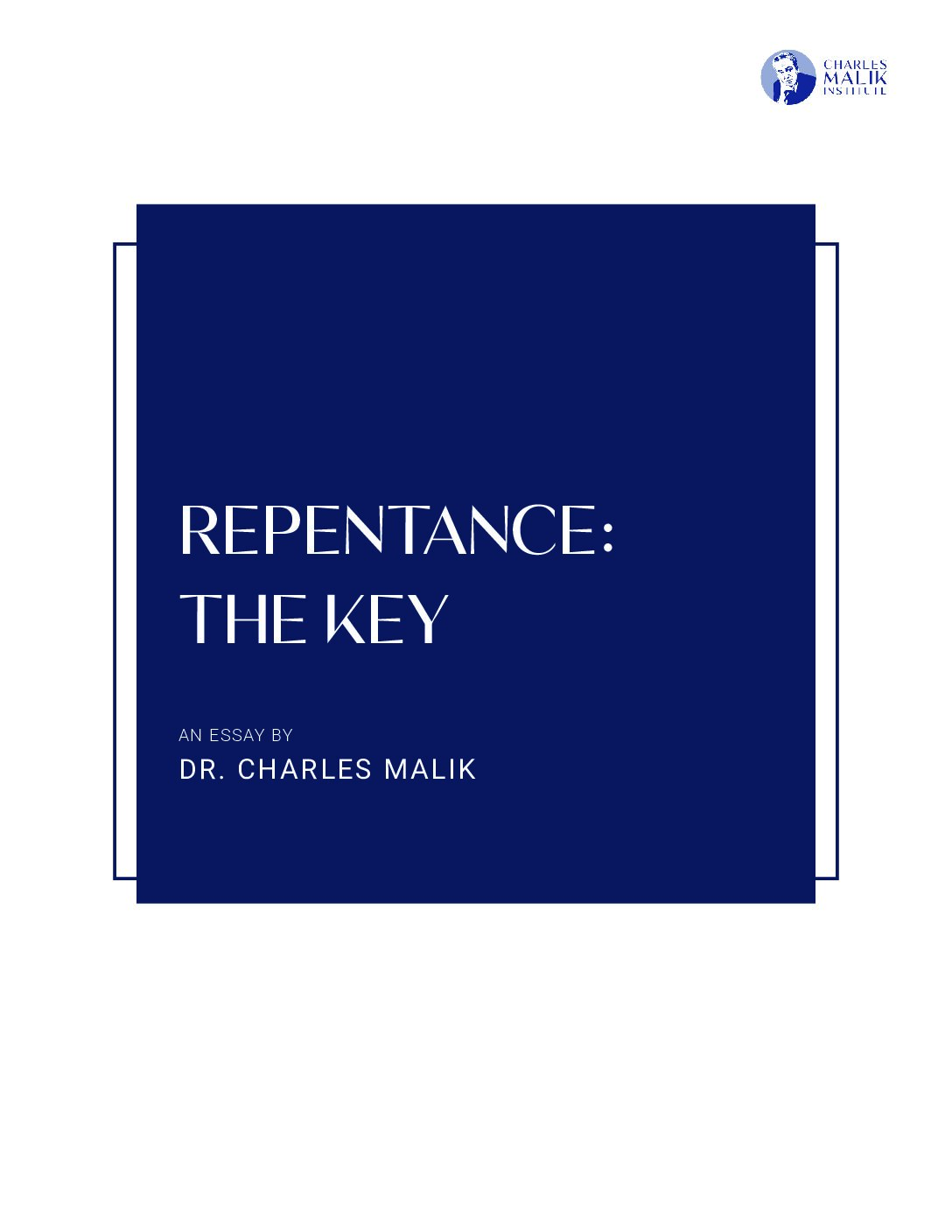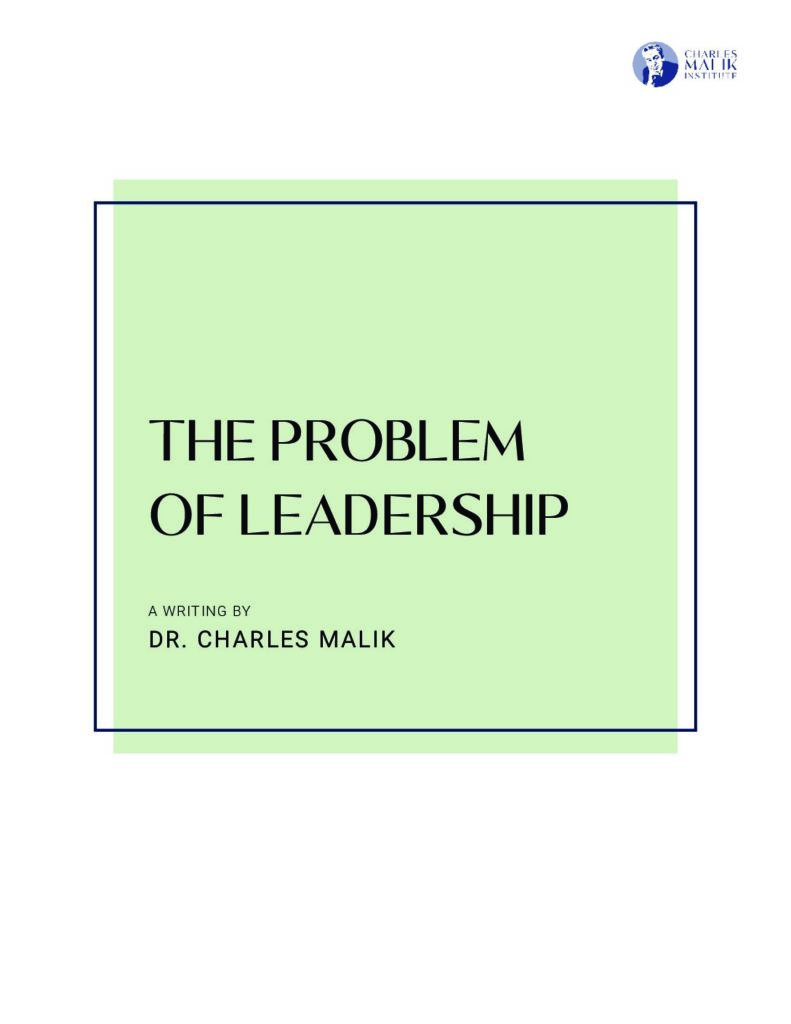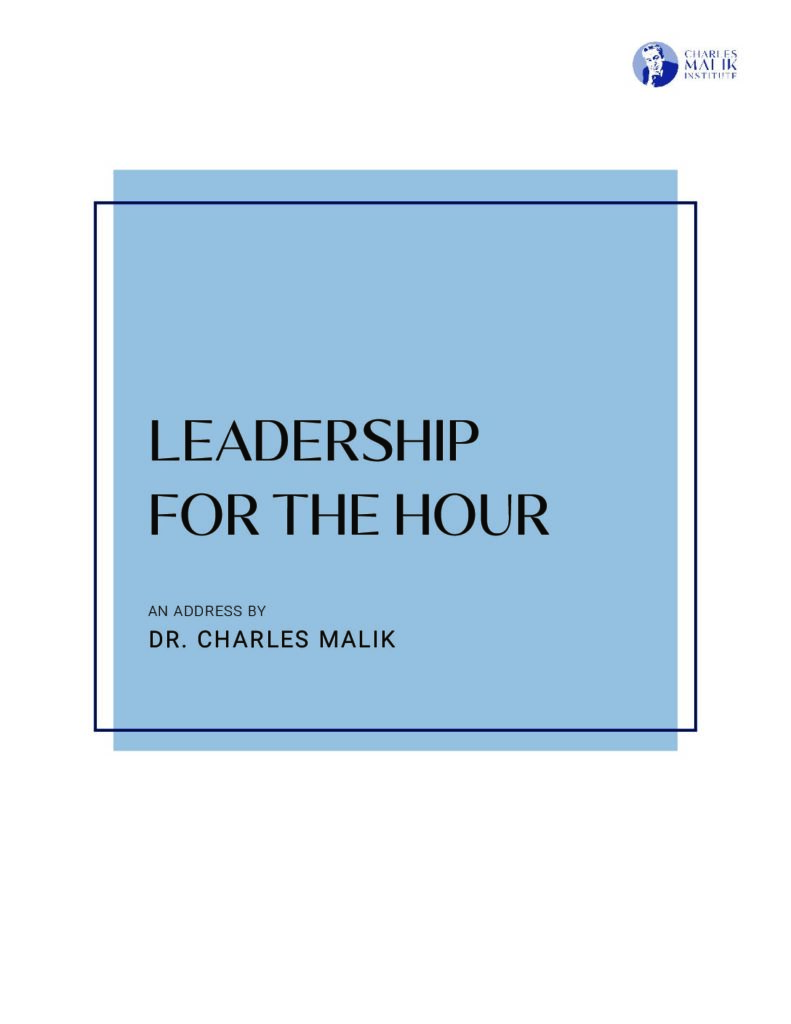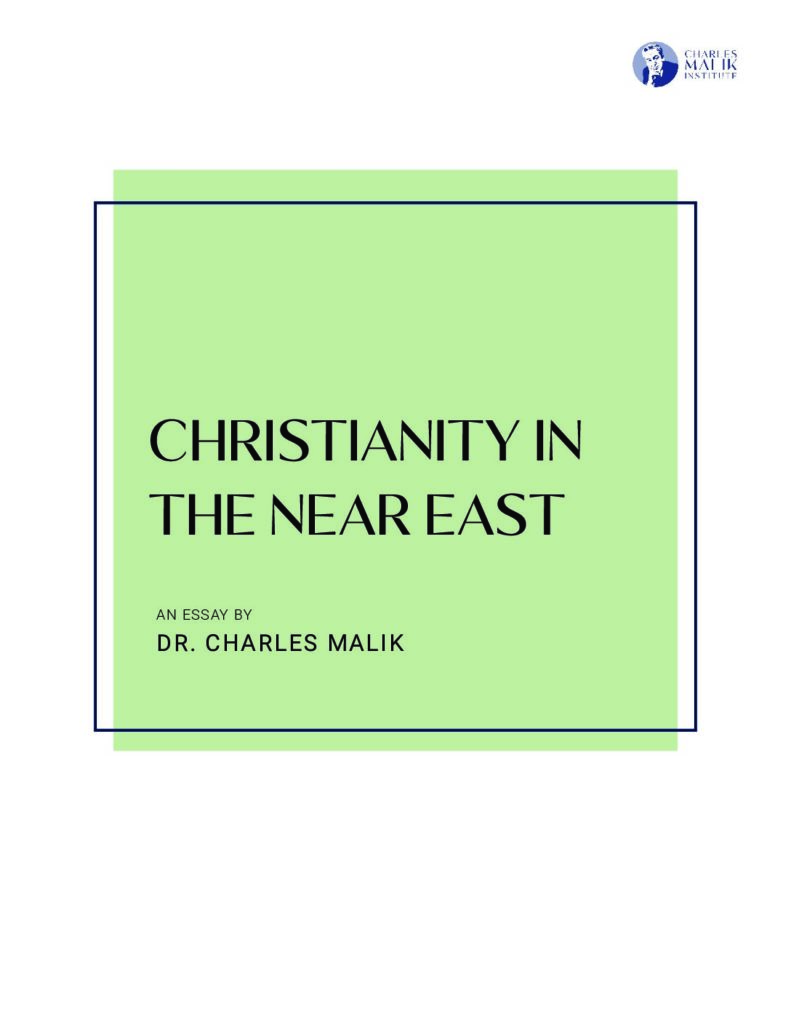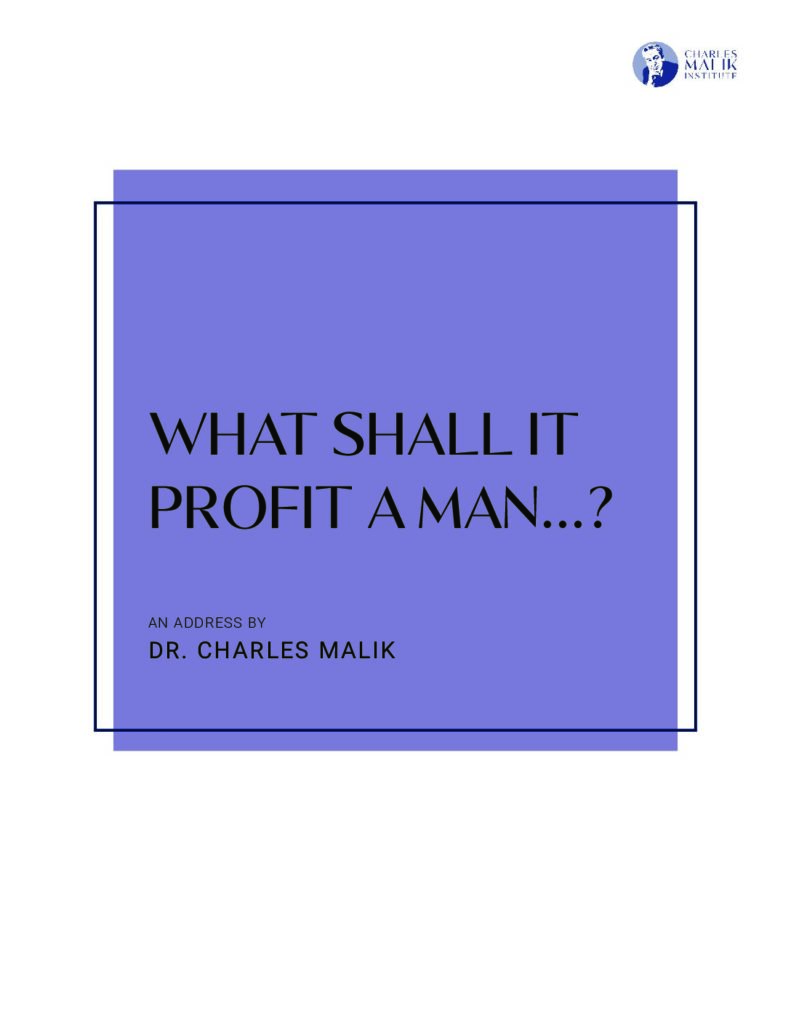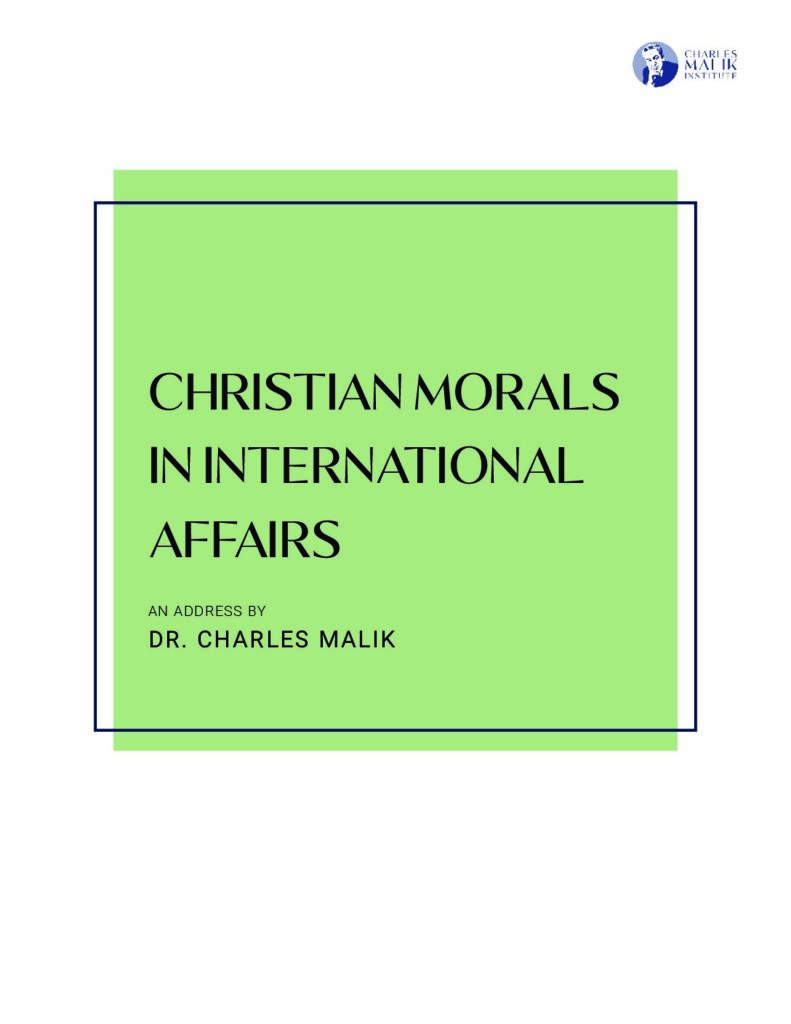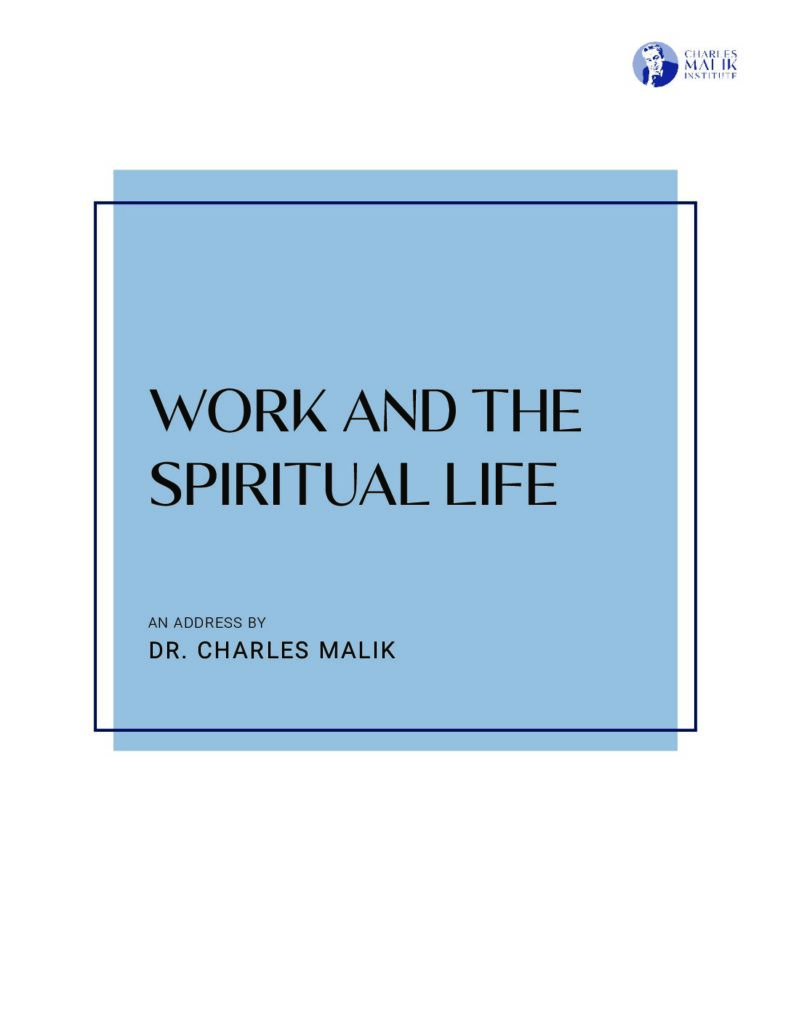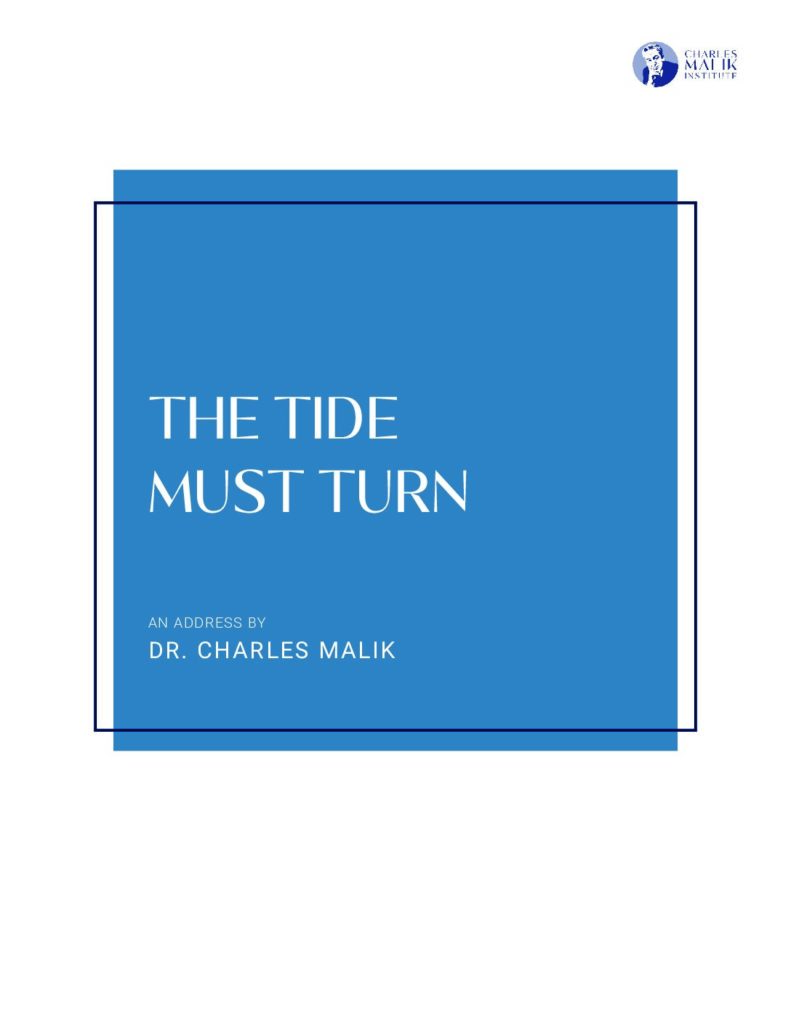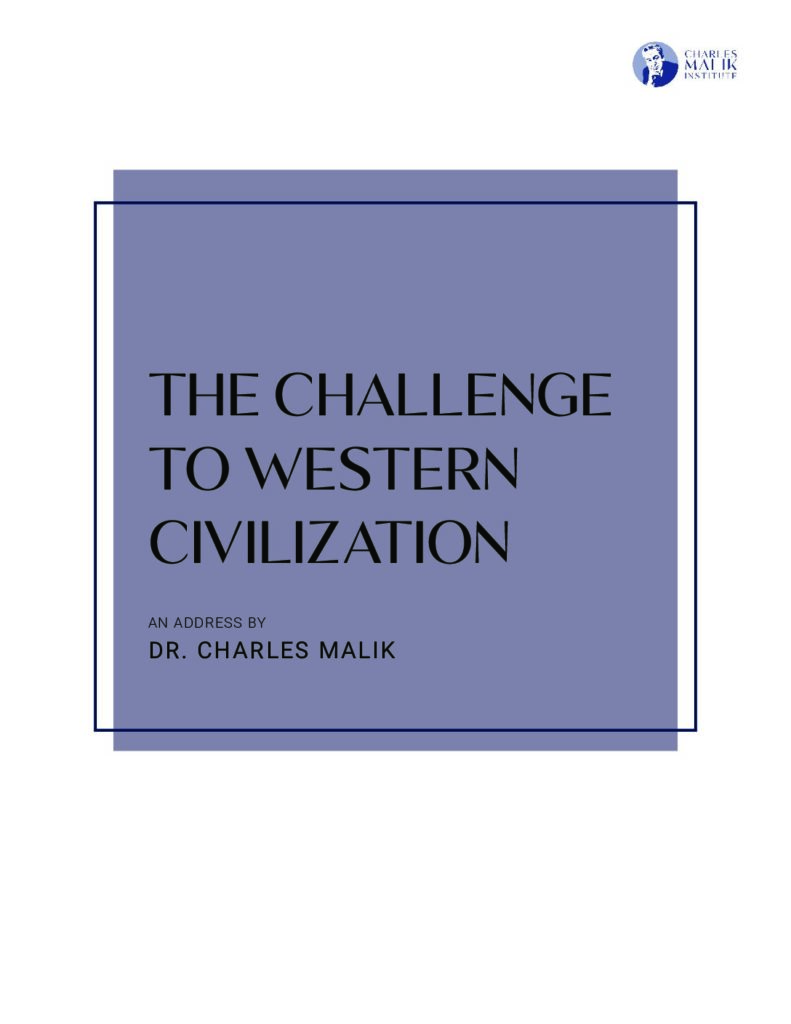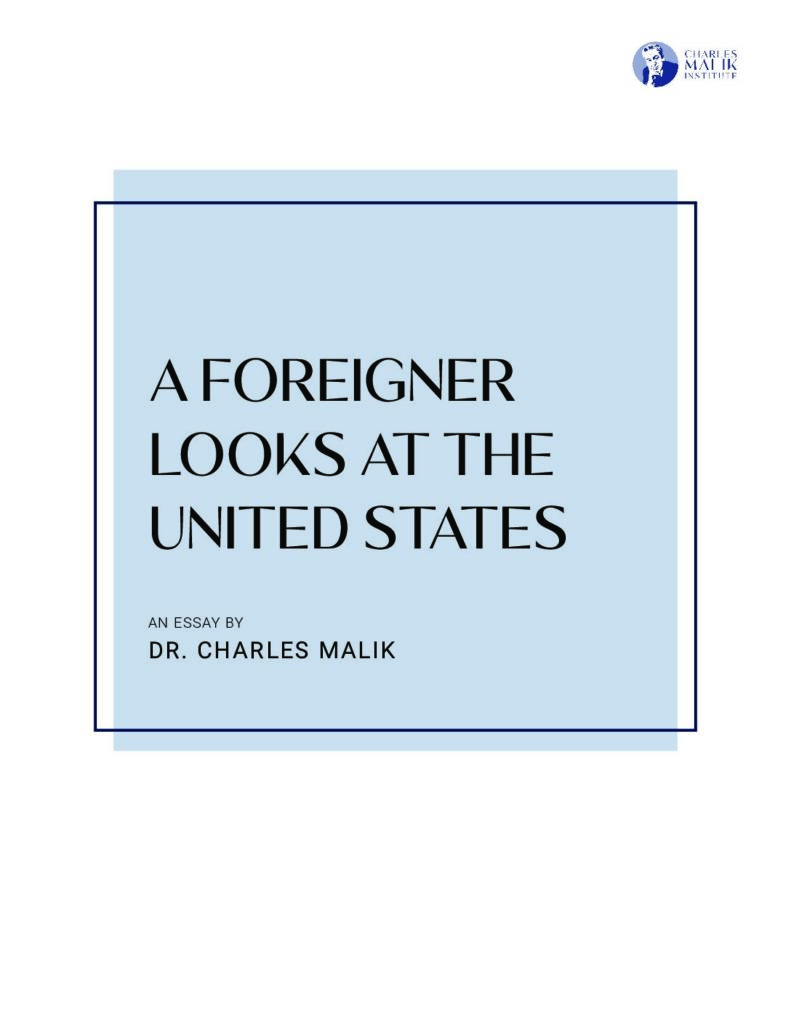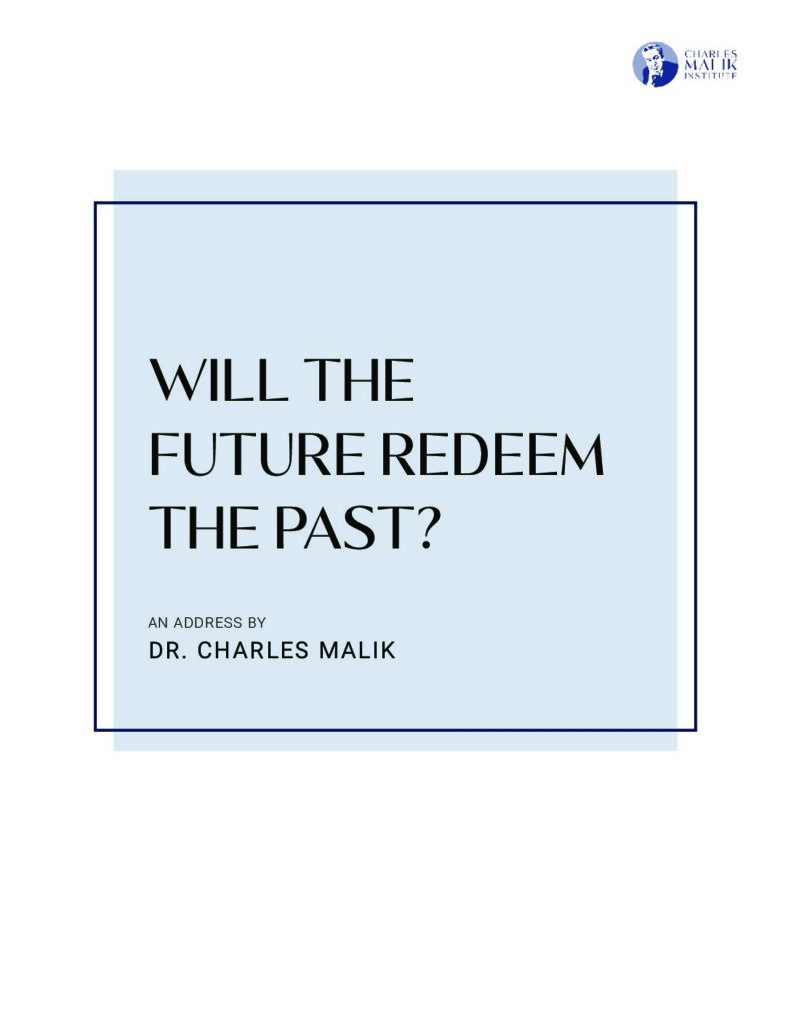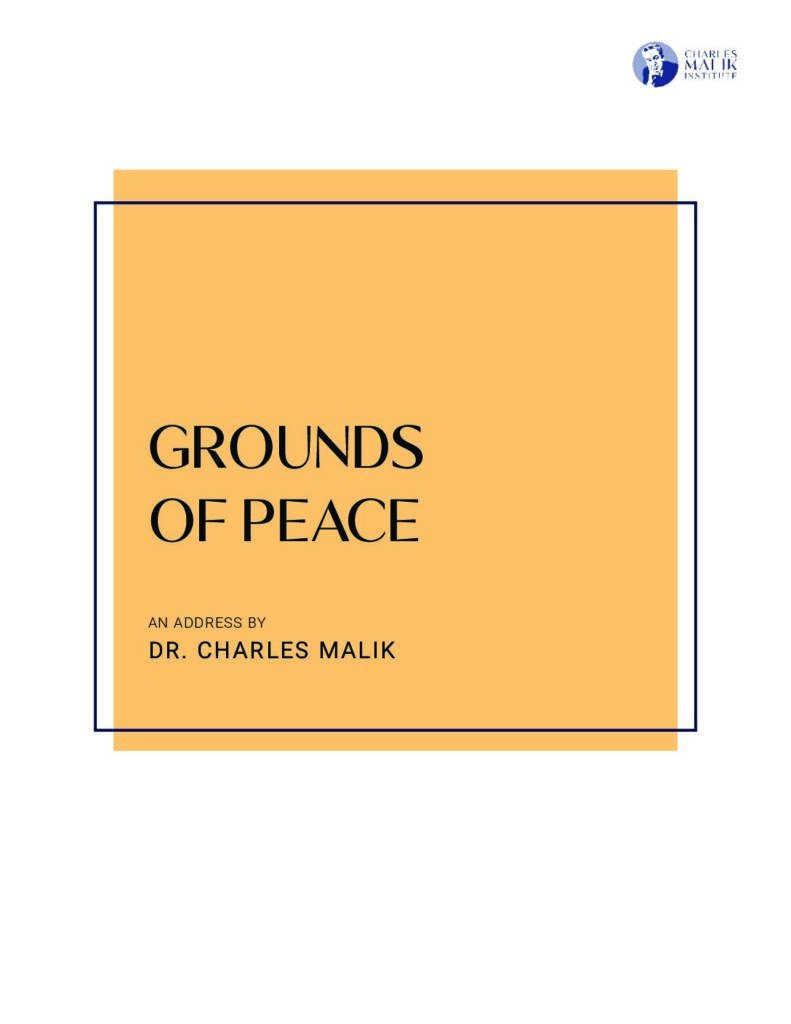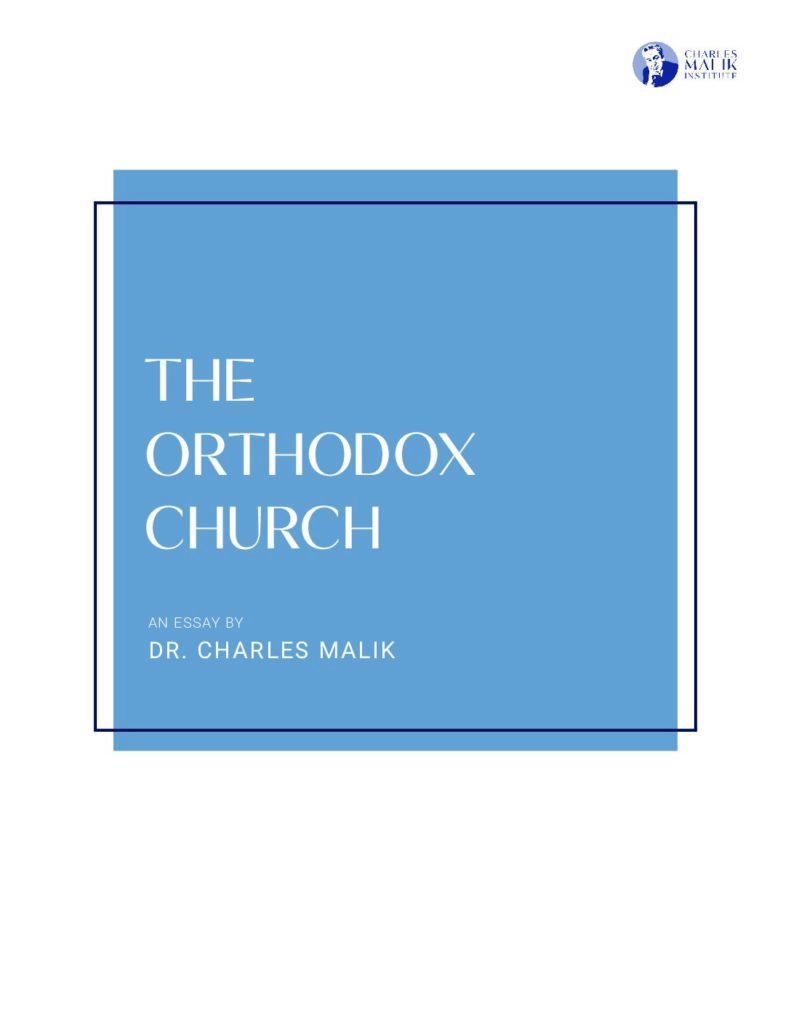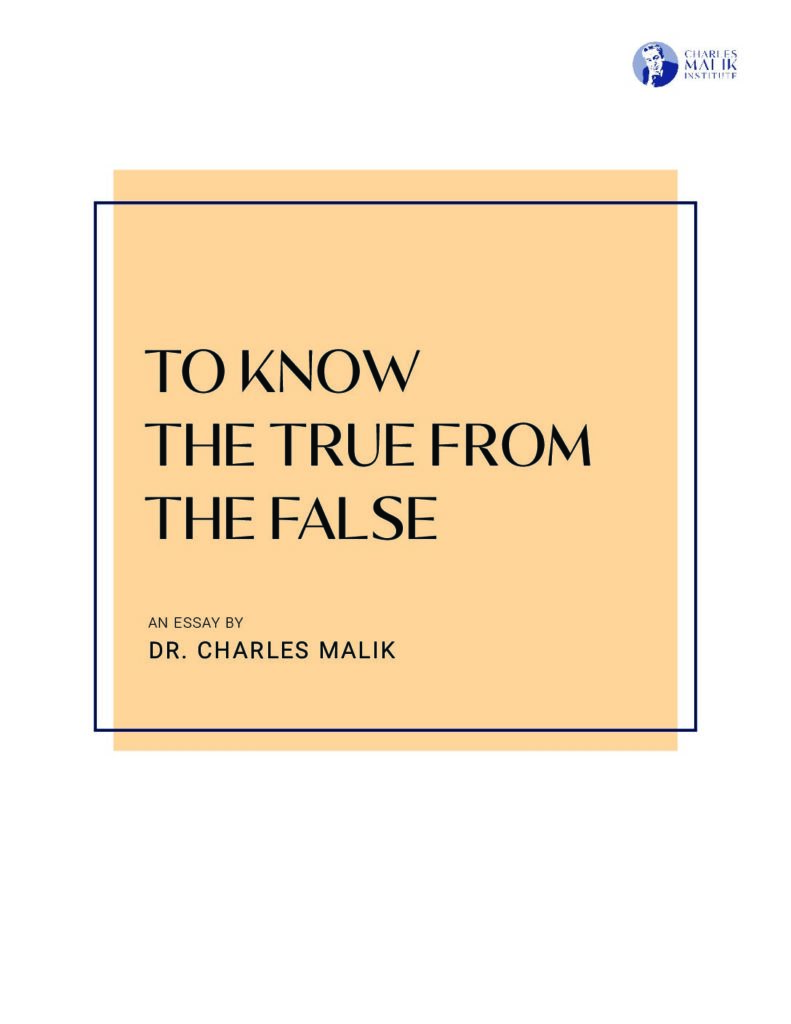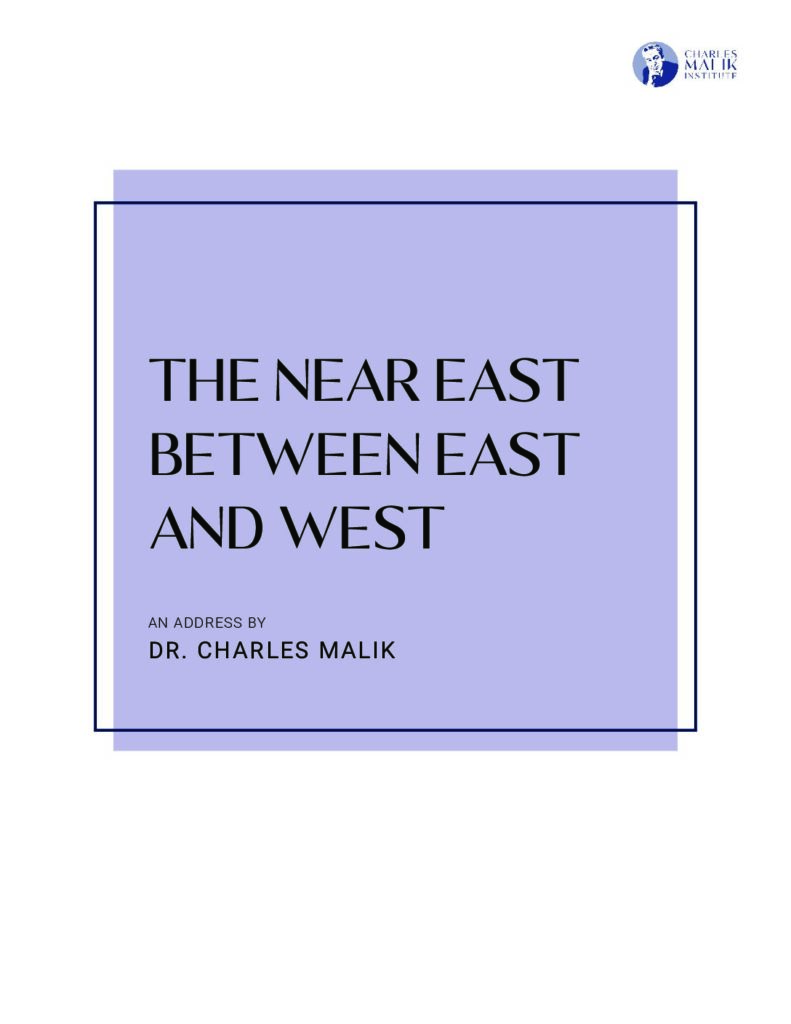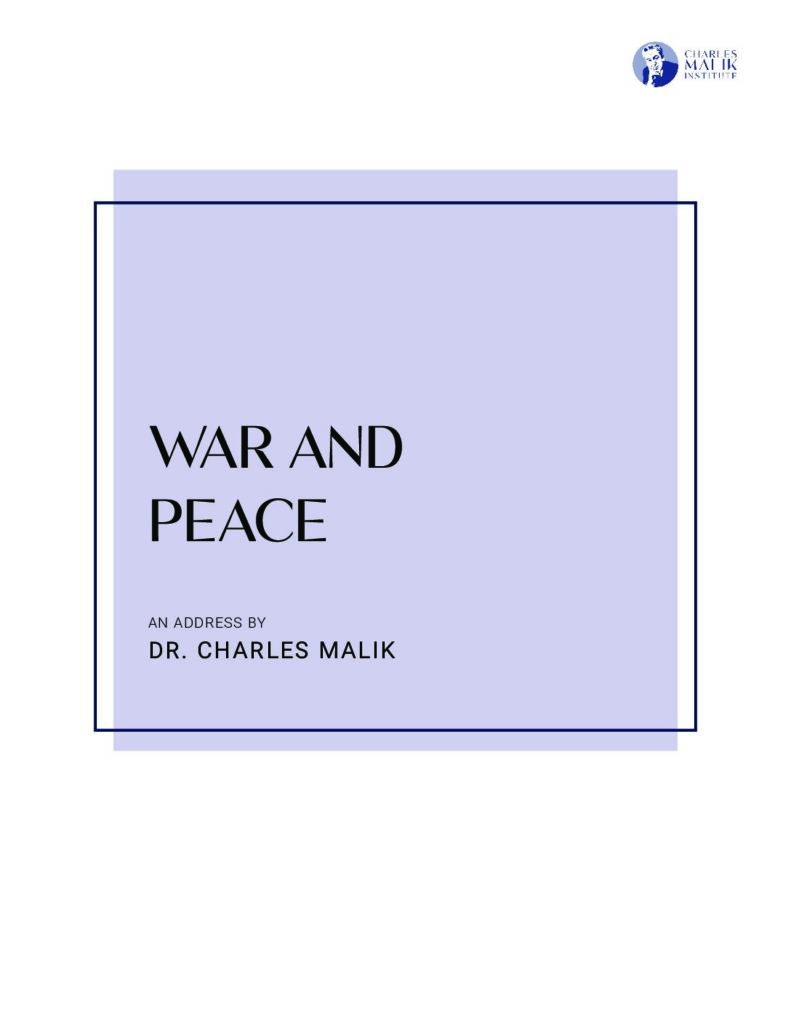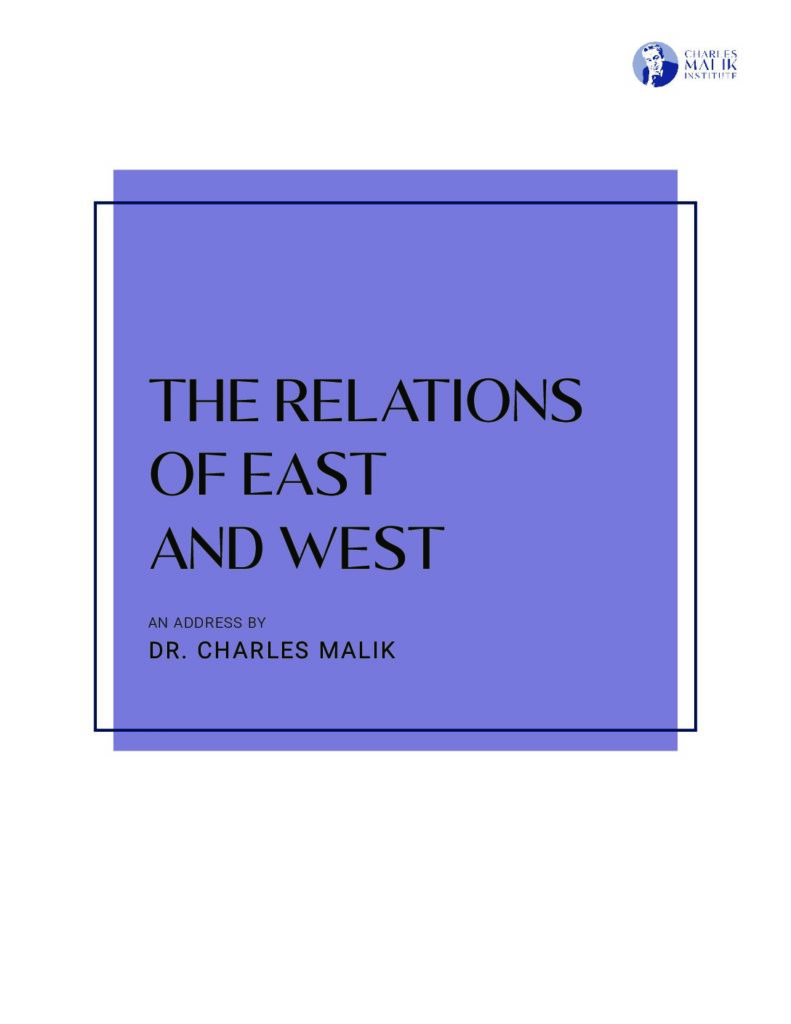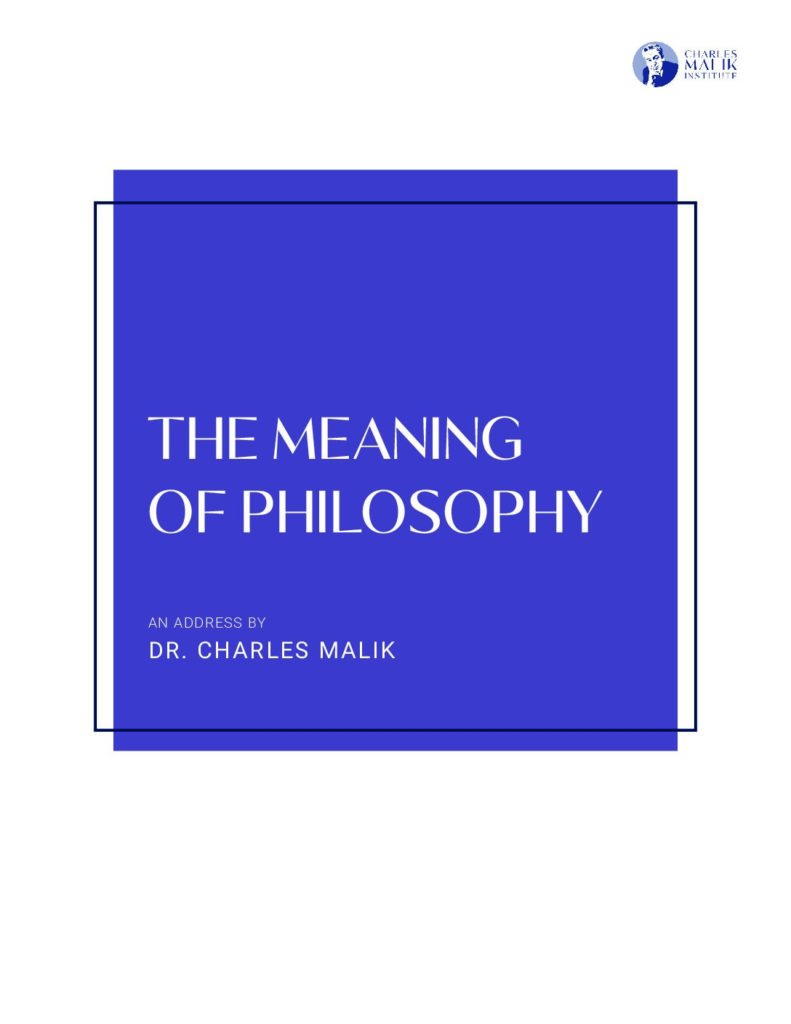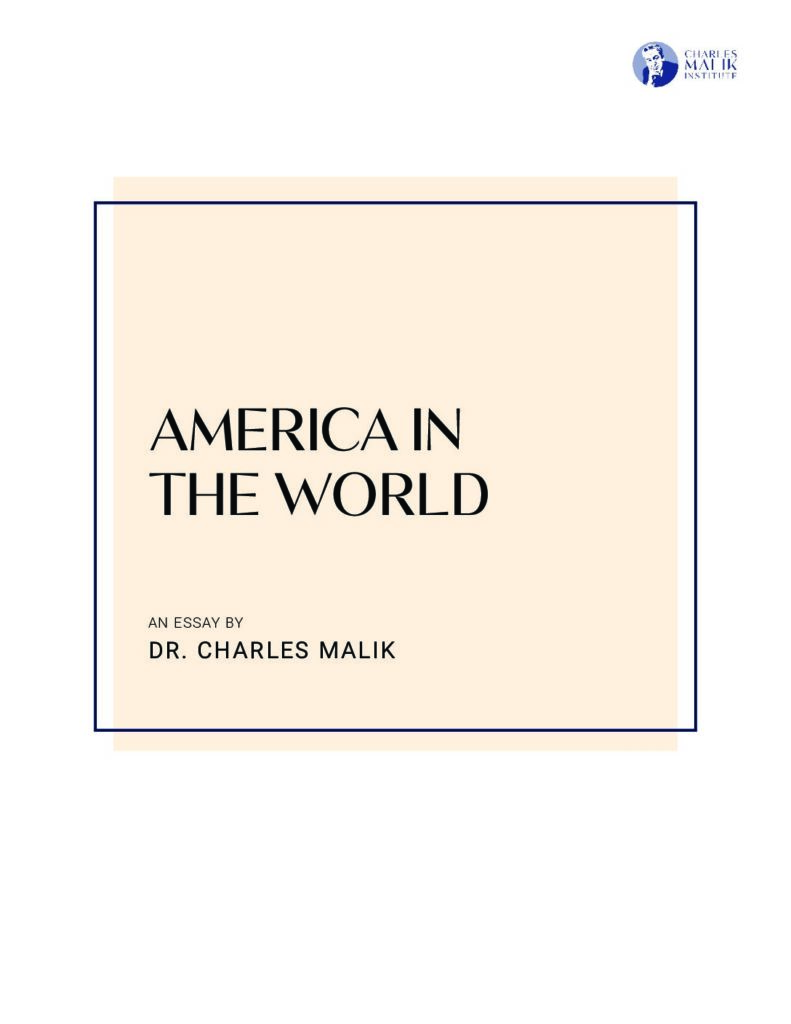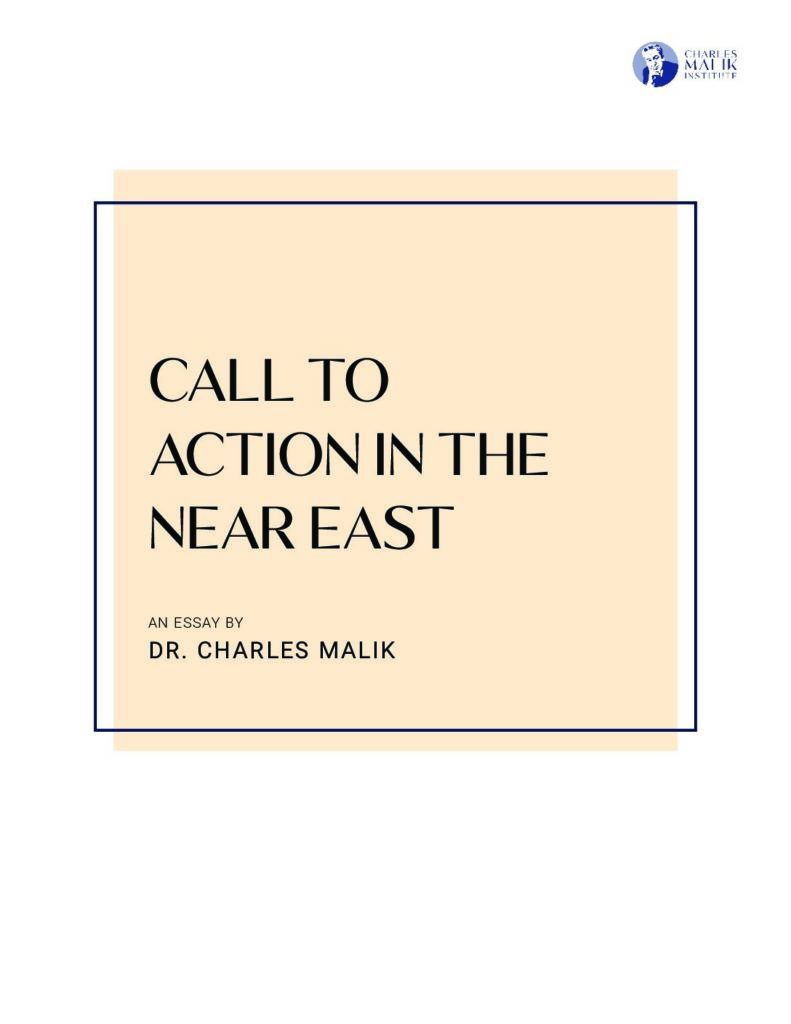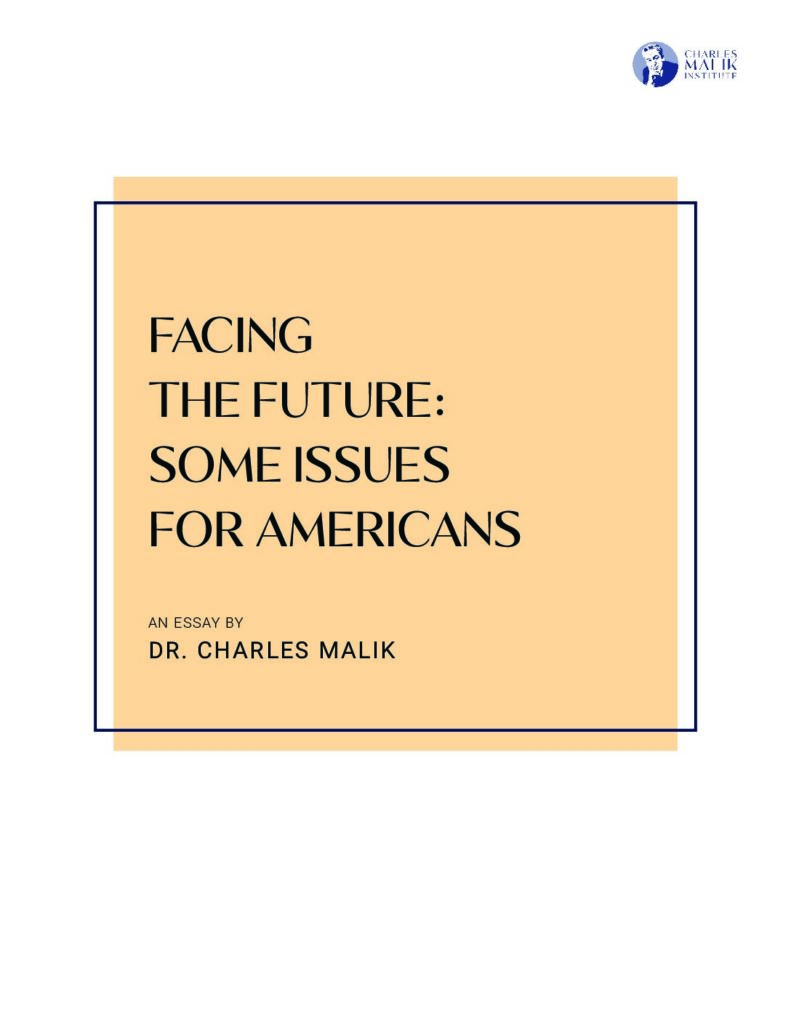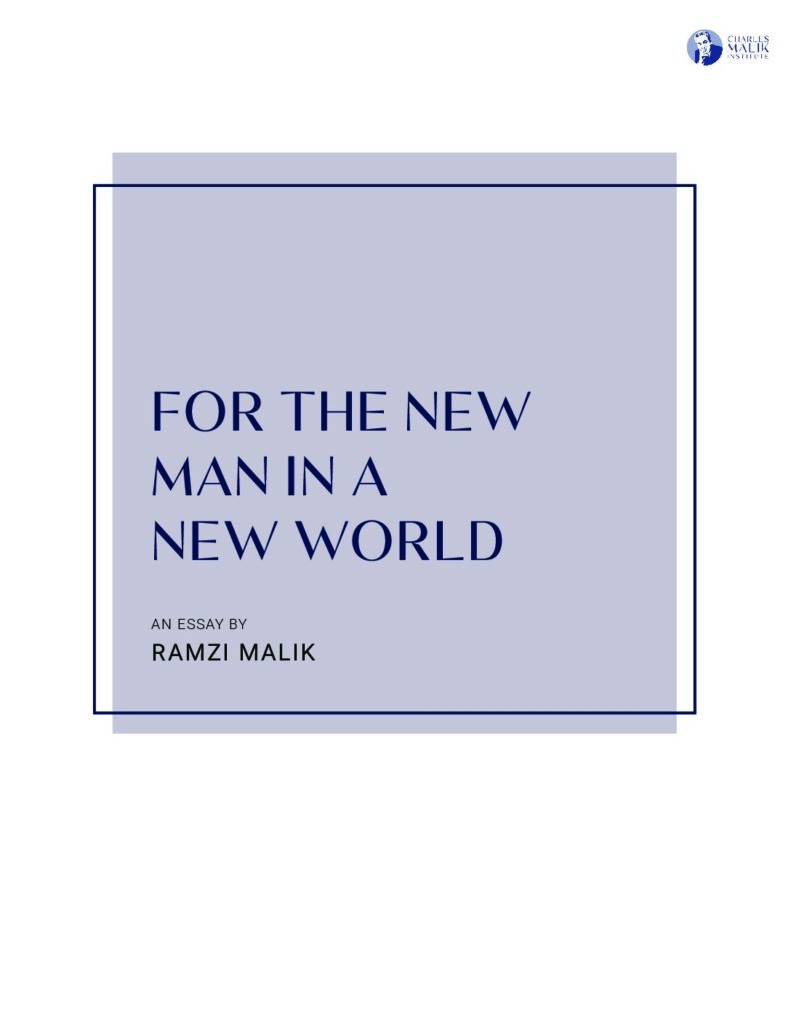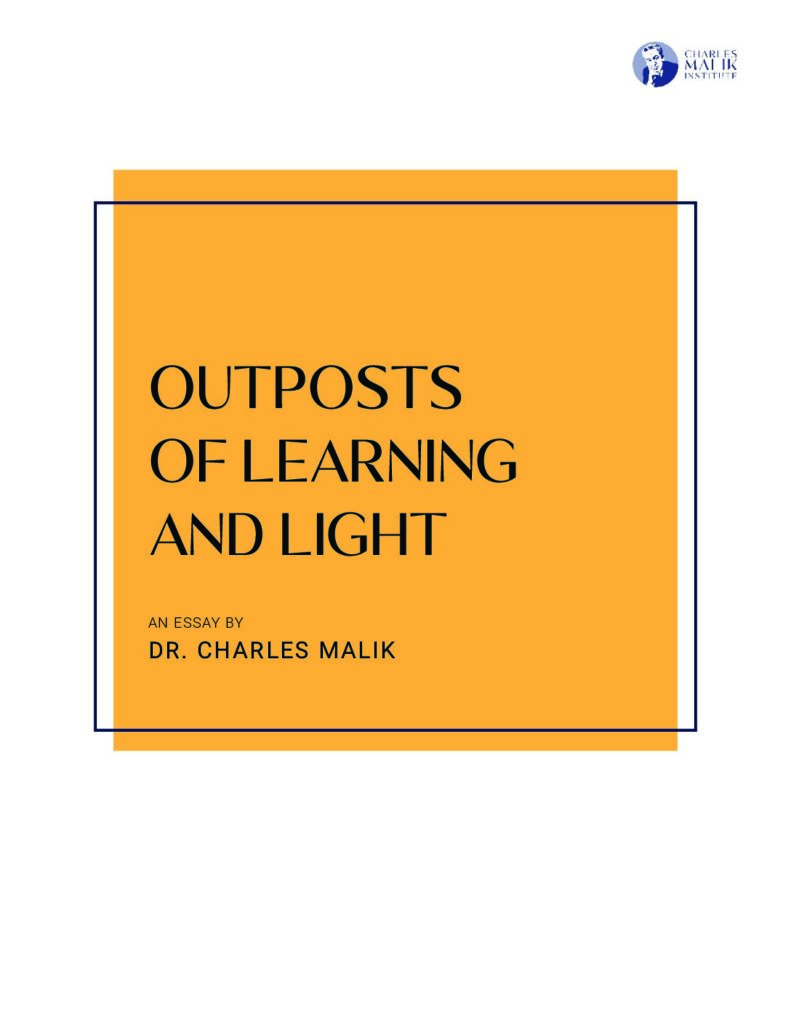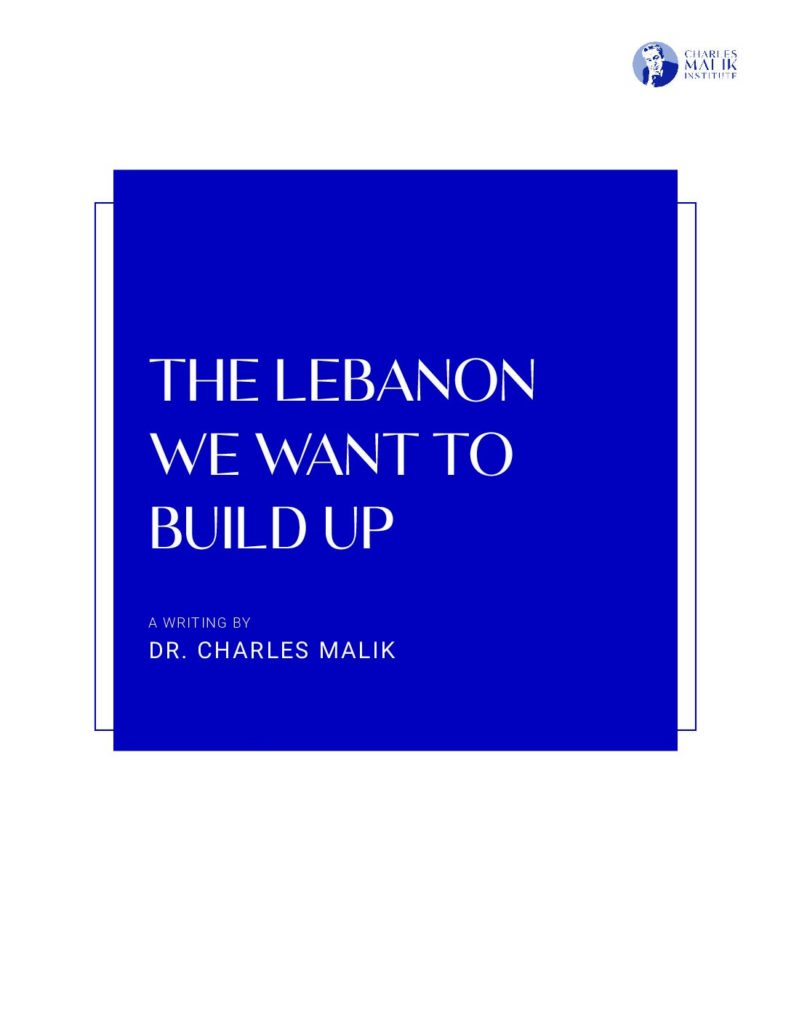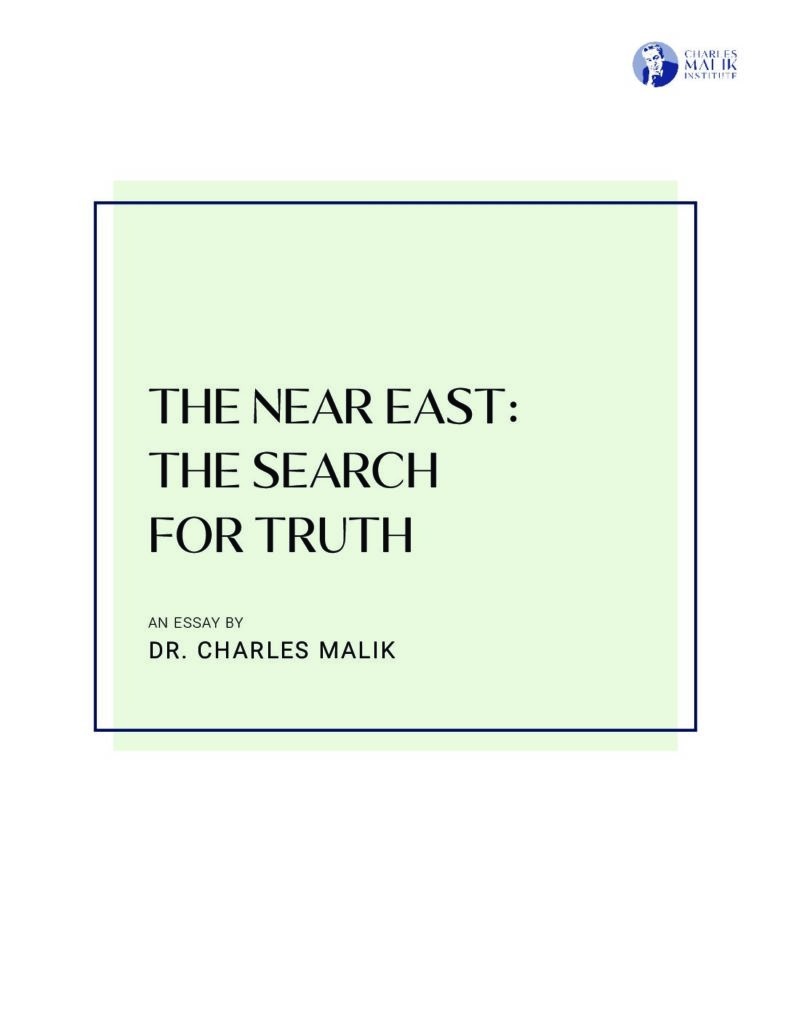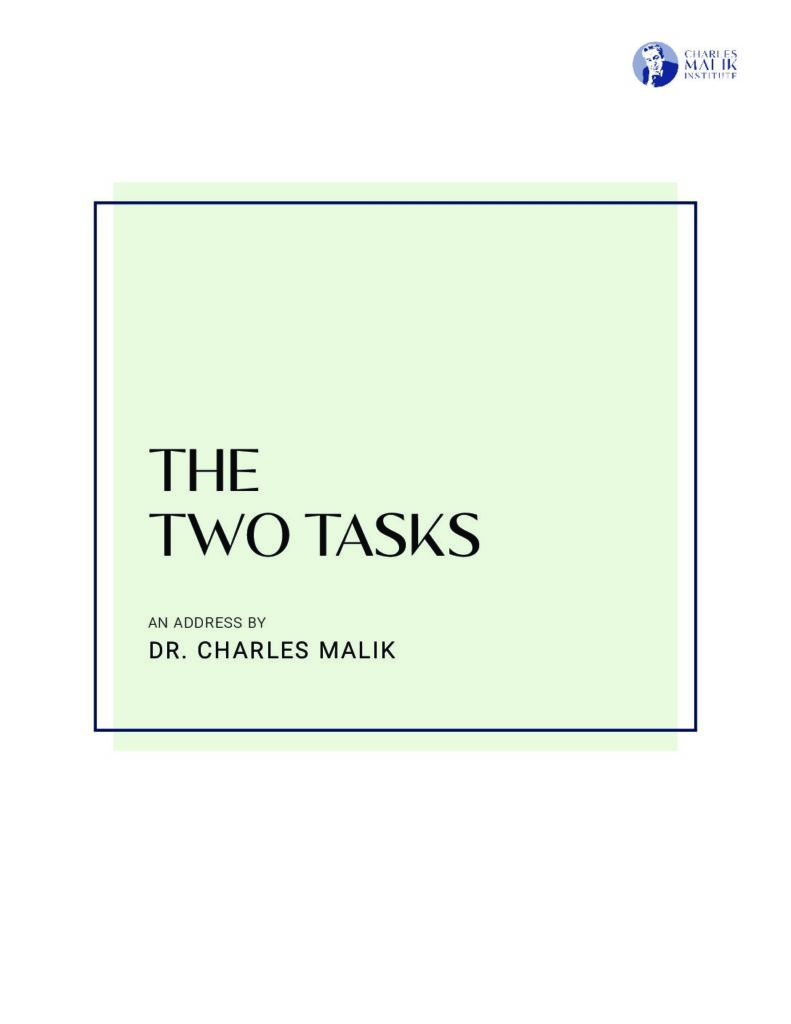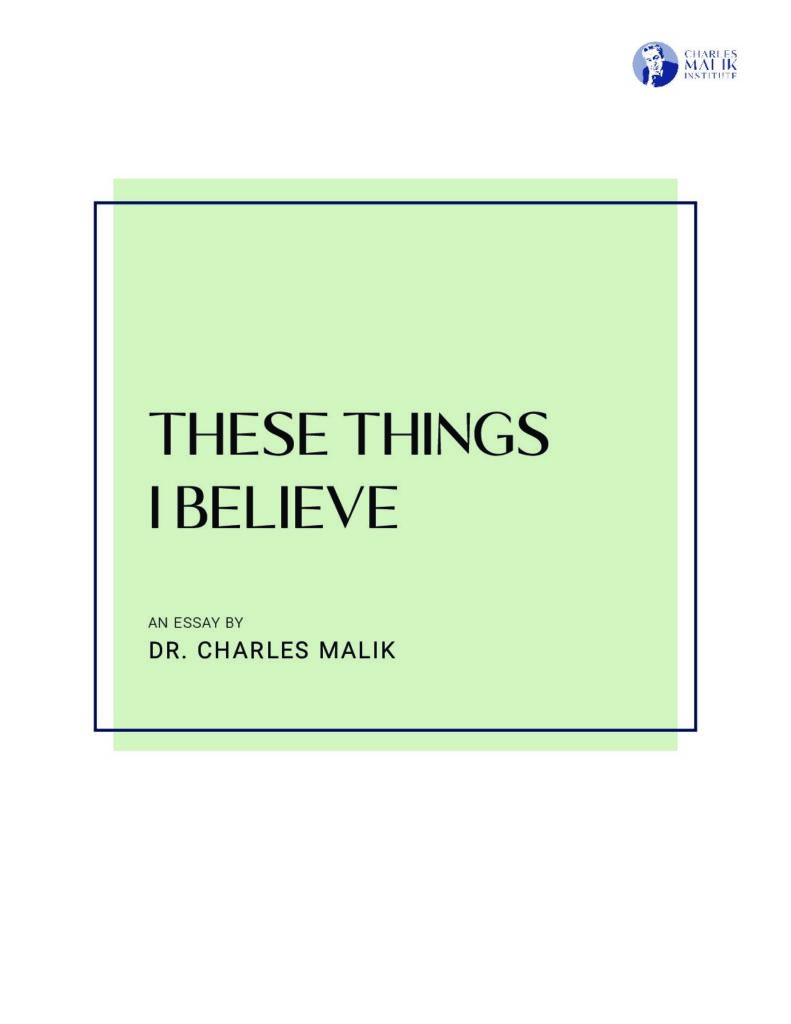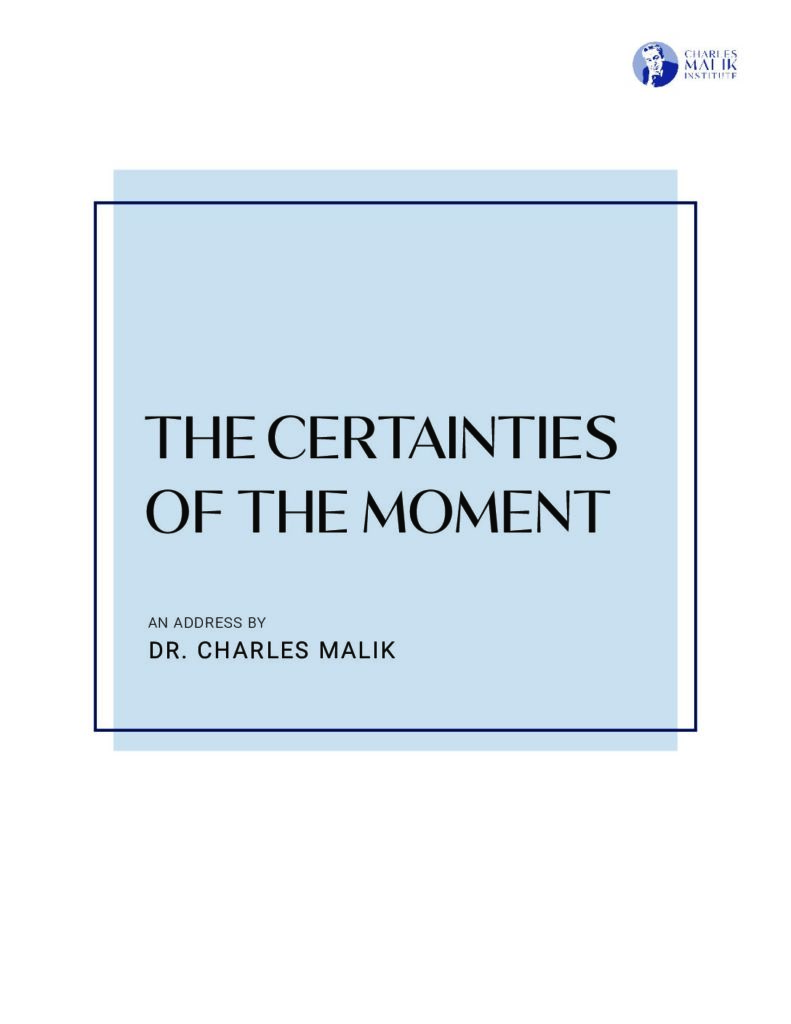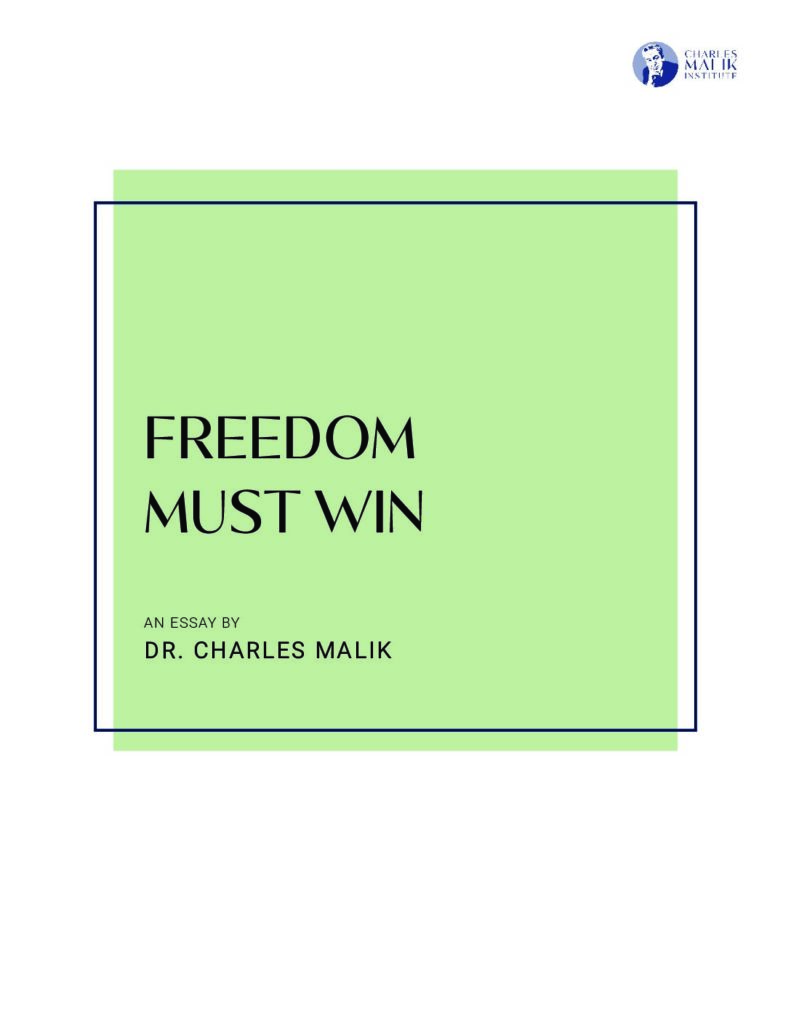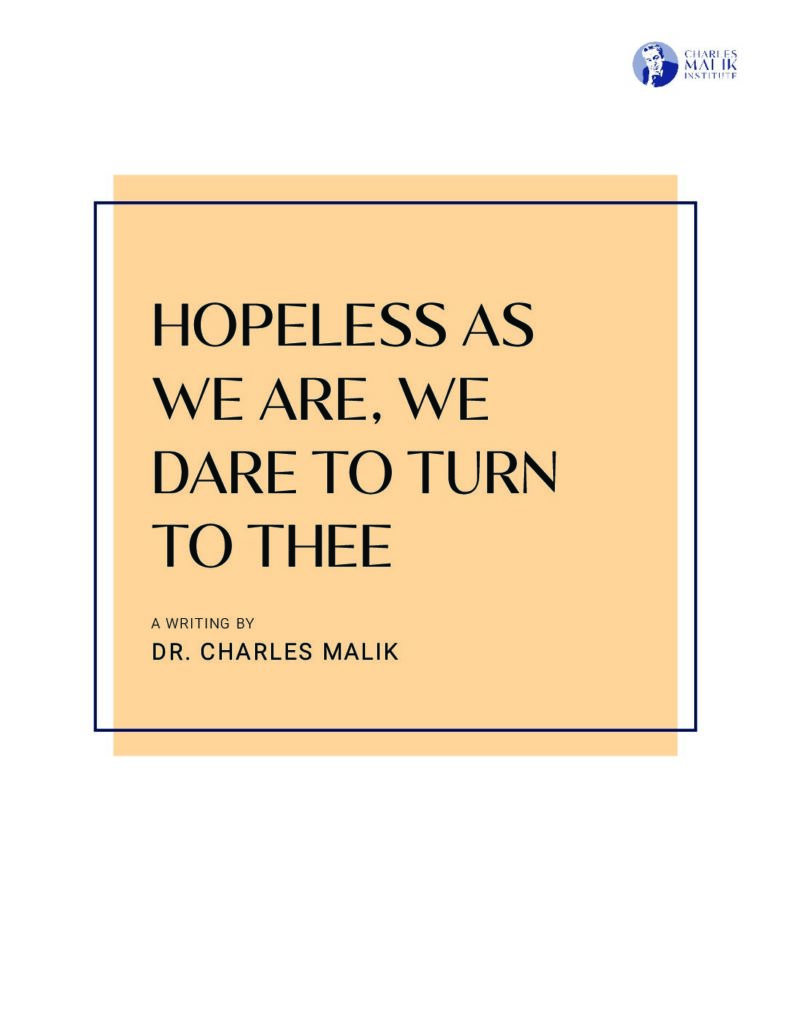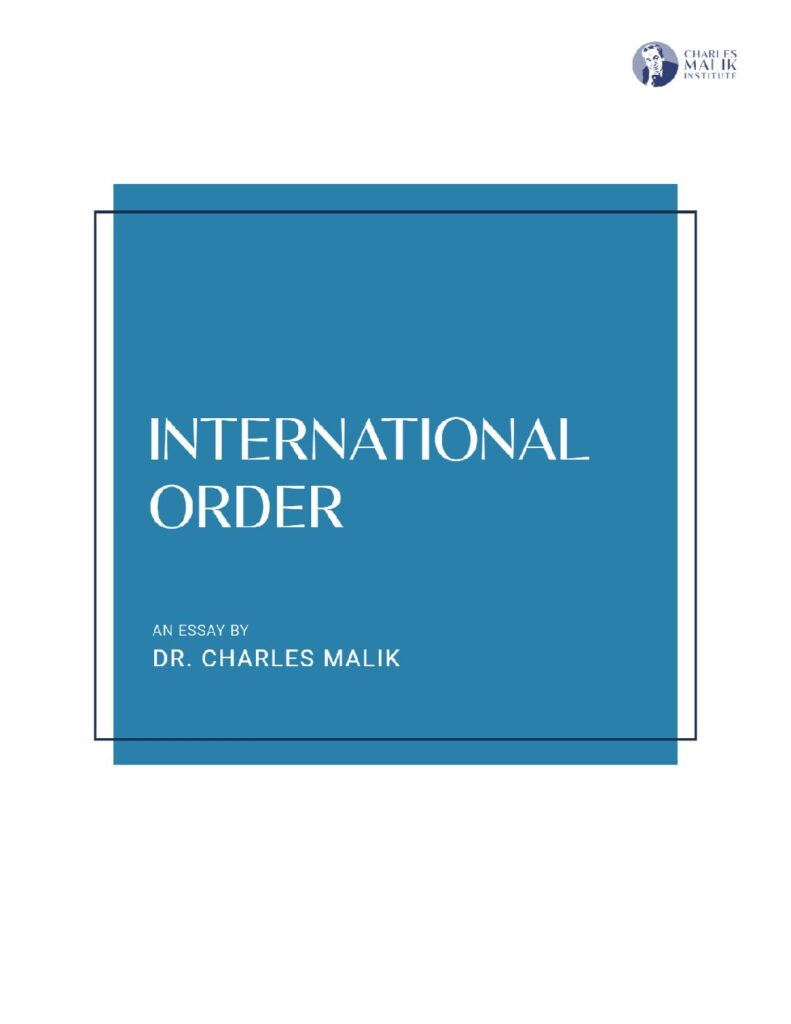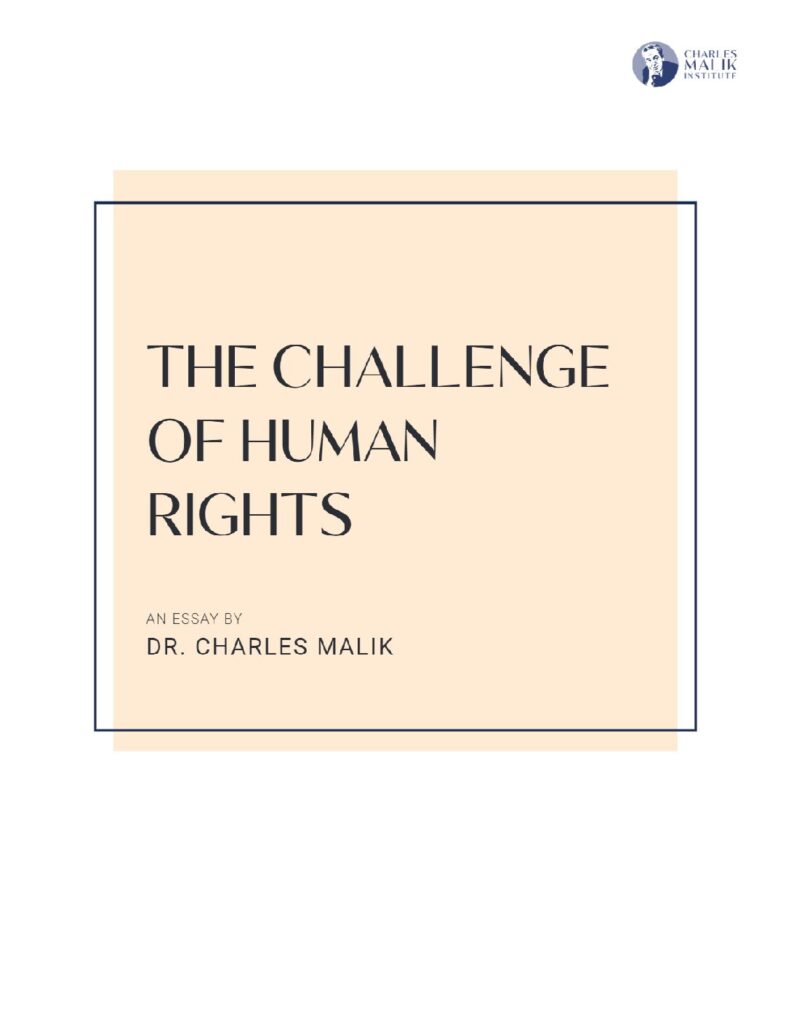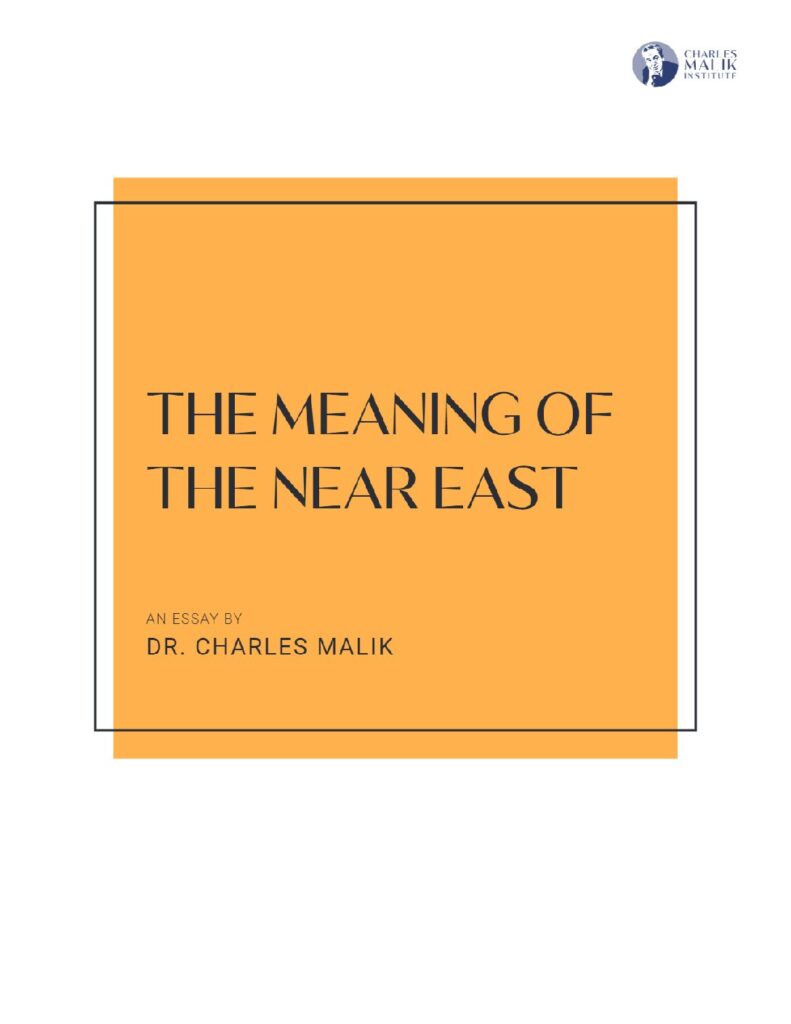Select a topic to view related quotes
Communism Crisis Leadership Faith Human Rights Lebanon United Nations Western ThoughtThere is plenty of material injustice in the world, but intellectual and spiritual injustice is infinitely more significant. There is inherent injustice so long as the great literature which is available, for instance, to American youth is entirely out of proportion to that which is available to the youth of other parts of the world. …
There is plenty of material injustice in the world, but intellectual and spiritual injustice is infinitely more significant. There is inherent injustice so long as the great literature which is available, for instance, to American youth is entirely out of proportion to that which is available to the youth of other parts of the world. When I enter certain American or European homes and find what the boys and girls of those homes can read and study, from Homer to Tolstoy, and reflect at the same time that this wealth of literature, which has helped to make history more than anything else, is not open to the youth of other lands, except insofar as they have learned a European language, I feel deeply disturbed. There is a great tradition of human thought and sentiment which is known and participated in by only a fraction of humanity. This is quite unfair. To have some peoples and nations enjoy the infinite riches of the mind while the rest of humanity wallows in darkness and error is an act of injustice of the first order…. There can be no peace, there certainly can be no real justice, so long as the goods of the mind and spirit are abundant in some countries and miserably deficient in others; so long as the great classics of human thought and feeling, from Plato to the present day, have penetrated and transformed the life and literature and outlook of certain countries and are totally unheard of in others; so long as the supreme persons of history belong to the living tradition of certain countries and are absent from others. The ultimate ground of peace is participation in a community of generis ideas. Such a community can be culled from the great classics of the past…. We are often urged to work for what is ambiguously called “rising standards of living.” Now I firmly believe we should do that. But what about rising standards of thinking and feeling? Shouldn’t we also work for that? Or is it that the refinement of the mind and spirit would automatically and magically follow upon the abundance of material goods and comforts? The highest insights and convictions of the ages must be more equally distributed throughout the world. Without this intellectual and spiritual justice there can be no real peace. To be sure, there can be no peace so long as people are physically starving, so long as the material goods of the world are unjustly distributed between classes and peoples. But there is a deeper starvation, a deeper injustice. The goods of the mind and spirit are themselves unequally and unjustly distributed throughout the world.”
Source: Speech on the proposal for the translation and publication of the Classics 1
Yet a general critique is necessary, because war and peace are not only a function of Communism: they depend also on the state of health and illness in Western culture. There are many phases of Western life which are repulsively materialistic. The spirit of business and gain, the maddening variety of things exciting your concupiscence,…
Yet a general critique is necessary, because war and peace are not only a function of Communism: they depend also on the state of health and illness in Western culture.
There are many phases of Western life which are repulsively materialistic. The spirit of business and gain, the maddening variety of things exciting your concupiscence, the utter selfishness of uncoordinated activity, all this is not something to attract and inspire. To the superficial observer who is unable to penetrate to the core of love and truth which is still at the heart of the West, there is little to choose between the soulless materialism of the West and the militant materialism of the East.
Quality is in eclipse. Quantity and size dominate. Not the better and truer, but the larger and physically stronger: these call forth moral approbation.
There is a corresponding bankruptcy of fundamental ideas. There is thus in this realm an unequal struggle for the hearts of men between Communism and the West. Communism displays a set of generic ideas—I believe for the most part false—in which it passionately believes, for which Communists are willing—I believe misguidedly—to die. There is no comparable ideological passion in the West. The talk about democracy, freedom, representative government, is woefully inadequate: it deals for the most part with pure form, sheer external machinery. It does not satisfy man’s deepest cravings for friendship and understanding and truth and love.
Politically the West will not serve the cause of peace by allying itself with dark regimes just because it is more expedient not to disturb them. Such regimes are running sores on the body politic of humanity. The West must be honest enough to rebuke and challenge them. It must firmly lead them into the broad ways of responsible change. Their peoples are poised to see whether the West acts from principle or from expediency. And the subversive whispers of world revolution become more and more potent the more these peoples despair of their rulers and the West.
Nor does it do merely to reject Communism. A positive alternative must be suggested. The only effective answer to Communism is a genuine spiritualized materialism which seeks to remove every trace of social injustice without loss of the higher values which constitute the very soul of the West. Communism cannot be met by a mere nay; it requires a mighty yea which will do full justice to man’s material needs but will at the same time place them in their subordinate position in the scale of values.
The tragedy of the world today is that the traditions which embody the deepest truth are not bothering clearly, sufficiently, responsibly, boldly to articulate themselves.
Whatever be the weakness and decadence of the West, it still has one saving glory: the University is free, the Church is free. It is a great thing to preserve unbroken the tradition of free inquiry started by Plato and Aristotle, and the tradition of love started by God. Truth can still be sought, and God can still be loved and proclaimed in joy and freedom. And this fact alone is going to save us. It will not be by pacts, or by atomic bombs, or by economic arrangements, or by the United Nations, that peace will be established, but by the freedom of the Church and the University each to be itself. Communism does not know what it has done when it subjected the Church and the University to its own dictates.
Source: War and Peace 2
In this age of marching materialism, it is difficult to champion the cause of the spirit and mind of man; it is difficult to impress on the international community that even after man is fully secure in his so-called ‘economic rights’ he may still be not-man. But unless man's proper nature, unless his mind and…
In this age of marching materialism, it is difficult to champion the cause of the spirit and mind of man; it is difficult to impress on the international community that even after man is fully secure in his so-called ‘economic rights’ he may still be not-man. But unless man’s proper nature, unless his mind and spirit are brought out, set apart, protected and promoted, the struggle for human rights is a sham and a mockery.
The second question is to determine the place of the individual human person in modern society. This is the great problem of personal freedom. How is my personal freedom limited by society? Can I freely examine any issue? Can I criticize? Can I express my criticism? Can I rebel, oppose, and say no to my group, government, or nation? Or am I wholly and without any remainder determined by my social relations, so that I have no right to rebel, no right to ask questions, no right to look around and seek, no right to lift my head above the crowd and reach forth to the light and truth? In this age of conquering socialism, it is difficult to champion the cause of freedom. It is difficult to shout from the housetops that man cannot be absorbed by society, that he is by nature free to think, free to choose, free to rebel against his own society, or indeed against the whole world, if it is in the wrong.
Source: The Challenge of Human Rights 1
There are two ultimate dangers besetting present-day preoccupation with the problem of human rights. The first is ... the danger of materialism. Who is not clamoring today for his economic rights, for what is called a decent standard of living? . . . There is a deadly danger that in our enthusiasm for economic and…
There are two ultimate dangers besetting present-day preoccupation with the problem of human rights. The first is … the danger of materialism. Who is not clamoring today for his economic rights, for what is called a decent standard of living? . . . There is a deadly danger that in our enthusiasm for economic and social justice we forget that man cannot live by bread alone . . . The second danger is … the danger of humanism. We have been endlessly speaking of human rights, as though there was nothing except man in the universe, as though he was the center of existence … It is very well to speak of human rights, but may it not be that these rights have of late been disturbed or disregarded precisely because man—modern man, clever man, proud man, sensuous man, self-sufficient man—has ceased to stand in fear and awe before that which is above him? If we have our rights, God also has His rights over us; and in vain shall we seek our rights until, confessing our sins, we recognize in all brokenness and humility the dominion of God over the course of history and of human life.
Source: Human Rights in the United Nations 1
Nothing is as important in the world today as for the Christians of America to grasp their historic opportunities and prove themselves equal to them. I say ‘the Christians,’ but I must add also ‘the Jews’ because what is fatefully at stake today are the highest spiritual values of the Judeo-Christian tradition. If the highest…
Nothing is as important in the world today as for the Christians of America to grasp their historic opportunities and prove themselves equal to them. I say ‘the Christians,’ but I must add also ‘the Jews’ because what is fatefully at stake today are the highest spiritual values of the Judeo-Christian tradition. If the highest Christian values are overturned, so will the highest Jewish values.
Source: The Two Tasks 1
The Greeks, more than any other people, displayed an irrepressible and unbounded passion for the exercise of reason and an incredible curiosity to investigate and know everything; and the university is nothing if it is not the home of free inquiry and unfettered curiosity. "All knowledge is of the universal," proclaimed Aristotle, and this is…
The Greeks, more than any other people, displayed an irrepressible and unbounded passion for the exercise of reason and an incredible curiosity to investigate and know everything; and the university is nothing if it is not the home of free inquiry and unfettered curiosity. “All knowledge is of the universal,” proclaimed Aristotle, and this is precisely the inalienable principle of the university. By knowledge Aristotle means scientific knowledge. Thus from the beginning the horizon of thought envisaged by the Greeks was the whole of the human mind. Man as man was their theme. No people on earth surpassed them, or even approached them, in this. What you know, or think you know, that you cannot articulate in such a way as to share it with all mankind is not knowledge. It could be faith, it could be feeling, it could be intuition, it could be hallucination, it could be daydreaming, but it is not knowledge. It remains your private property until you manage to convert it into knowledge, namely, until you succeed in communicating it to others, indeed potentially to all mankind. Knowledge is essentially publishable and shareable with all men. Knowledge therefore is not the possession of this or that individual or culture alone; knowledge is never something esoteric: knowledge, as knowledge, is universally human or it is something fake.
Source: A Christian Critique of the University 1
The West does not only incorporate Western countries and British overseas dominions, but those that are united by the Greco-Roman-Judeo-Christian tradition. Four factors enter into this unity: the existence of free centers of learning and research, the presence of independent churches (the distinction between the religious and the secular realms), the belief that authority (of…
The West does not only incorporate Western countries and British overseas dominions, but those that are united by the Greco-Roman-Judeo-Christian tradition. Four factors enter into this unity: the existence of free centers of learning and research, the presence of independent churches (the distinction between the religious and the secular realms), the belief that authority (of the government) arises from the will of the people, and the relationship between the government and material wealth, in which governments do not monopolize the means of production. Thus we can read Truth, God, Government, and Wealth which goes back to the afore-mentioned tradition. The essence of this relationship lies in the subordination of Man to God and the recognition of the ultimacy of the individual person.
Source: The Relations of East and West 1
I believe in reason, meaning that sound reason with the proper training is capable of grasping and comprehending things. Science itself is a rational power. Investigating reason wonders at everything and probes everything from the highest of beings—God—to the humblest. Under no circumstances should any obstacles be placed in the way of responsible investigative reason…
I believe in reason, meaning that sound reason with the proper training is capable of grasping and comprehending things. Science itself is a rational power. Investigating reason wonders at everything and probes everything from the highest of beings—God—to the humblest. Under no circumstances should any obstacles be placed in the way of responsible investigative reason seeking to understand anything. The peoples and cultures that hinder reason and prevent it from exploring any subject responsibly will themselves go extinct, or they will be enslaved or continue to languish in slavery. However, if reason is consumed with pride and begins to regard itself as everything, its powers turn demonic. One of the qualities of sound reason is humility and its realization of its limits beyond which it cannot go. Reason also does not mature in a vacuum or in isolation and at a distance from other rational minds. Only by entering deeply and dynamically into the cumulative rational tradition that stretches for at least 3000 years can reason develop and advance. Short of immersing oneself in this rich and living tradition of reason, it is impossible to wonder at anything from God down to the grain of sand on the seashore and to arrive at any results about these things that will be respected in Paris and Oxford and Boston and Moscow where this tradition is alive and creative. Only in this way can you become an active part of this living tradition of rational discourse. Reason therefore has its rules and its centers and its traditions, which means it is impossible for reason to concoct anything out of thin air or relying purely on the imagination. Only by adhering to these venerable centers and being molded from within in the crucible of their methodologies and traditions can reason arrive at anything certain and hence respectable. I believe that this certainty, arrived at by reason immersed in the living cumulative tradition, is truth. I believe therefore that truth exists and is not lost, as some maintain, and that reason is capable of searching for it and uncovering it—the truth about anything, from God to the sand grain, passing through the animal, the human person, and society. Such a certainty only eludes the one who is incapable for finding it but is indeed accessible to the rational investigator. And if this truth has not been discovered by any person so far, it remains existing in itself and in the mind of God. To emphasize the existence of fixed truths about any subject, and reason’s ability to fathom as many of them as possible—this is one of the most important tenets of my faith.
Source: Shahadat ‘Umr 1
But just as we are not alone with God and the Bible but also with others, so we are not only endowed with a soul and a will to be saved but also with a reason to be sharpened and satisfied. This reason wonders about everything, including God, and we are to seek and love…
But just as we are not alone with God and the Bible but also with others, so we are not only endowed with a soul and a will to be saved but also with a reason to be sharpened and satisfied. This reason wonders about everything, including God, and we are to seek and love and worship the Lord our God with all our strength and all our mind. And because we are with others we are arguing and reasoning with one another all the time. Indeed, every sentence and every discourse is a product of reason. And so it is neither a shame nor a sin to discipline and cultivate our reason to the utmost; it is a necessity, it is a duty, it is an honor to do so.
Source: The Two Tasks 1
Great spiritual and intellectual leadership is lacking. The commanding voice, the resounding word, the towering mind, the lofty vision, the uncompromised conviction, are not in sight. The Pope alone rises now and then to these heights. But on the whole, there is utter mediocrity in world leadership.
Great spiritual and intellectual leadership is lacking. The commanding voice, the resounding word, the towering mind, the lofty vision, the uncompromised conviction, are not in sight. The Pope alone rises now and then to these heights. But on the whole, there is utter mediocrity in world leadership.
Source: Lebanon Between Hope and Despair 1
